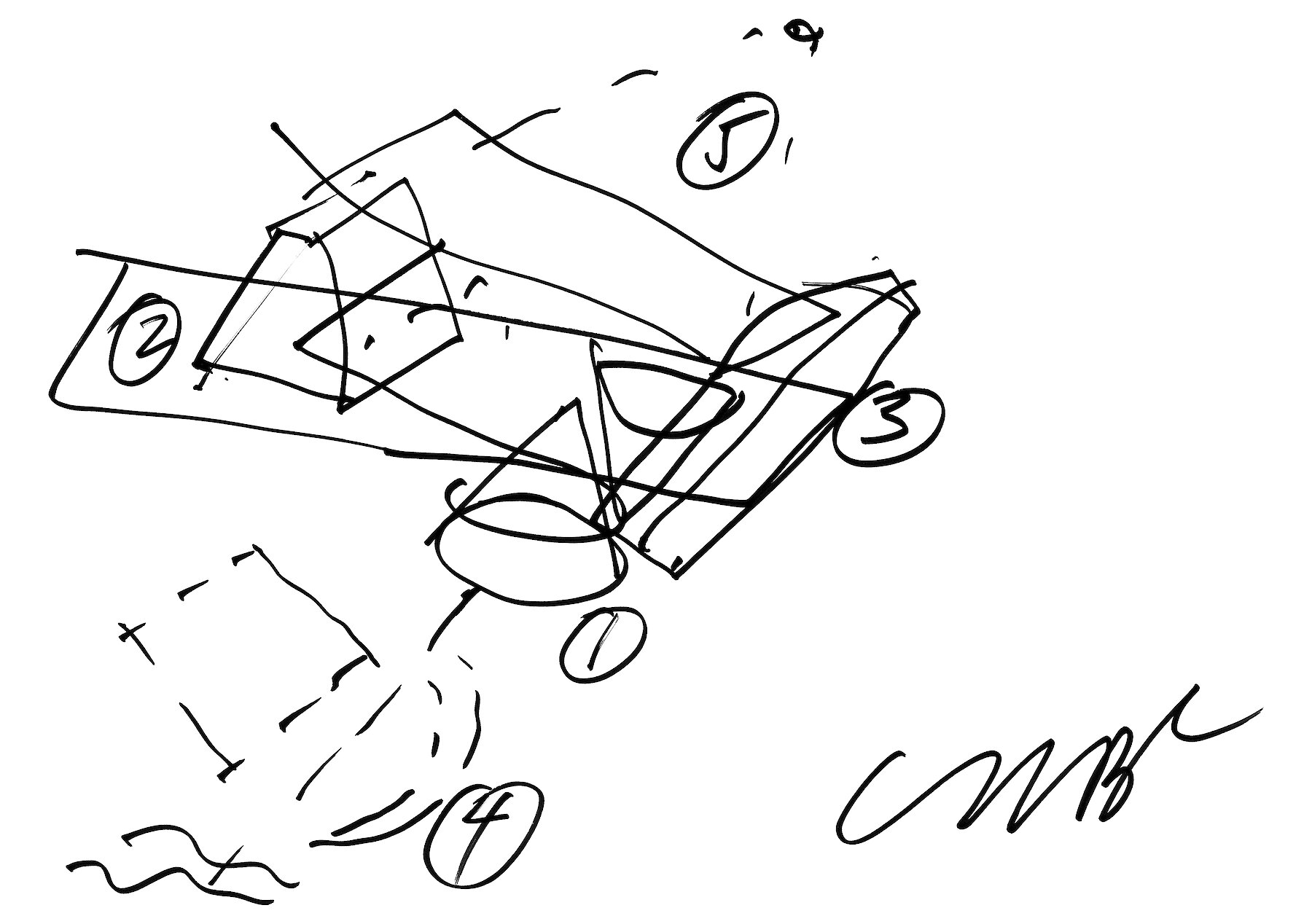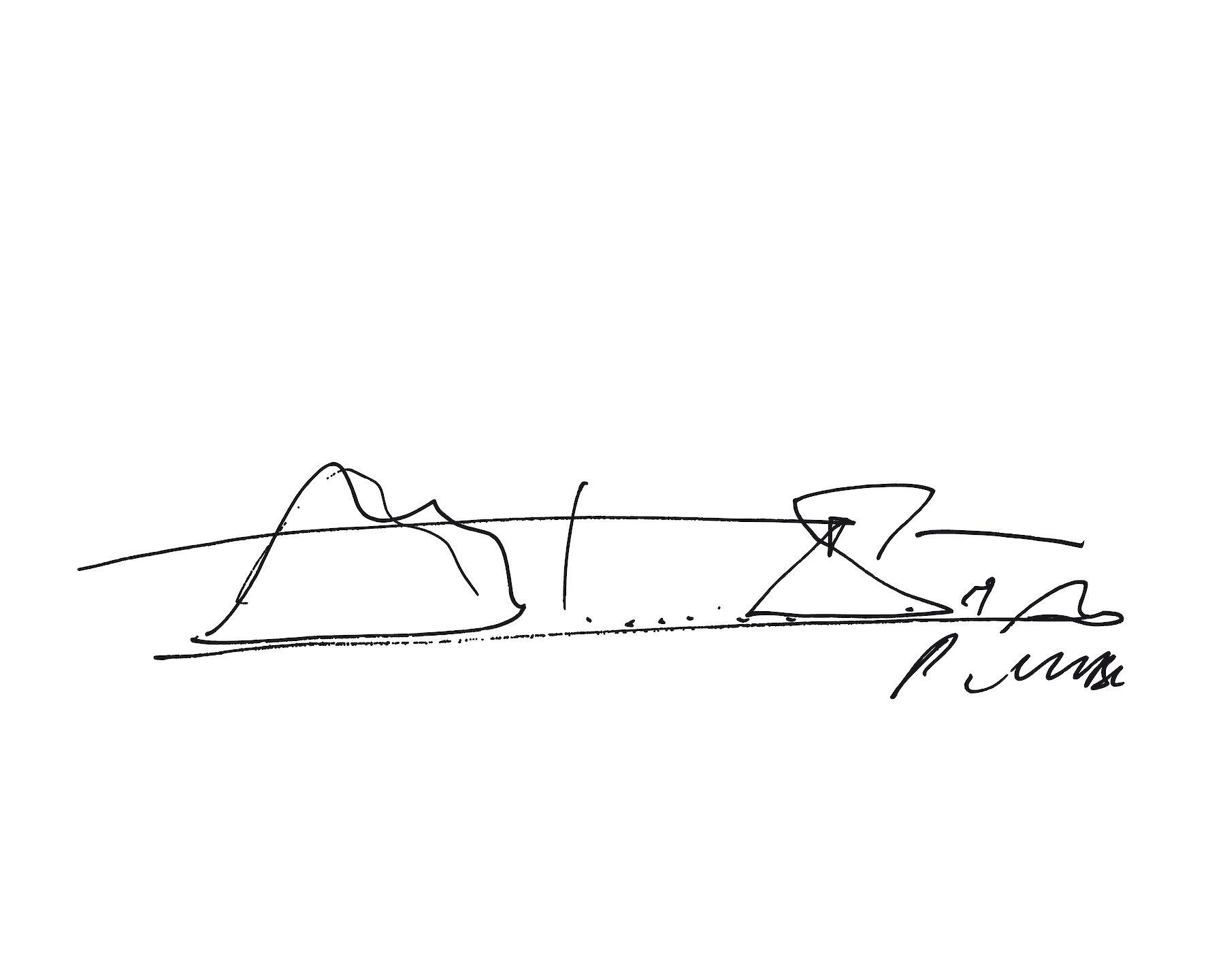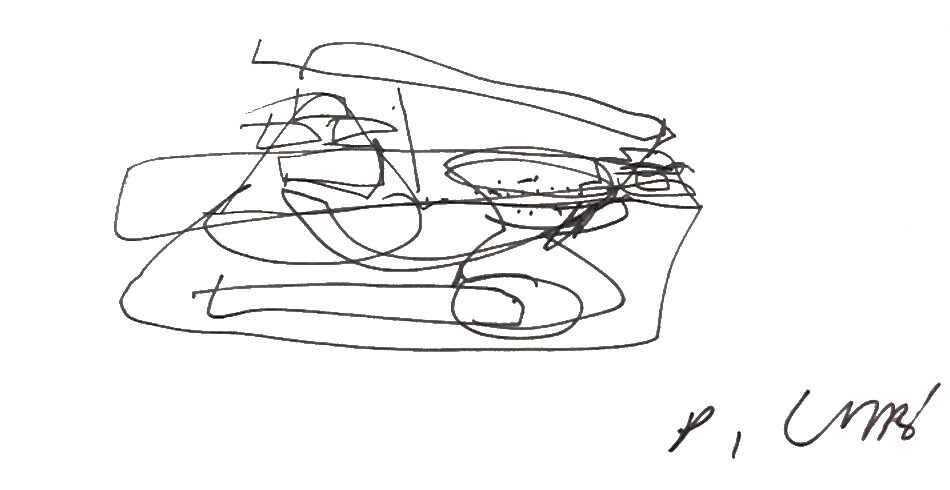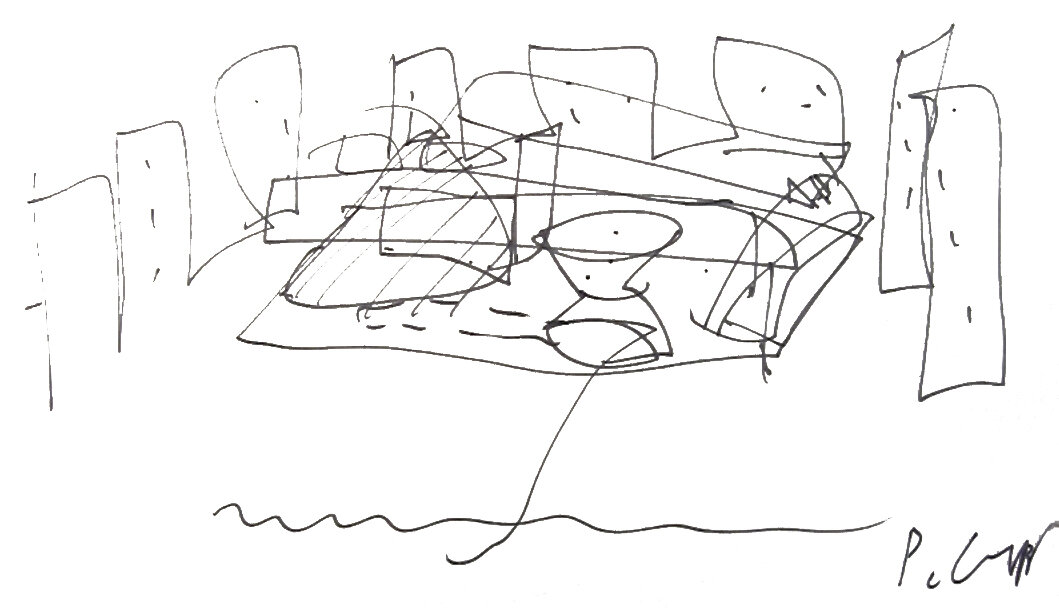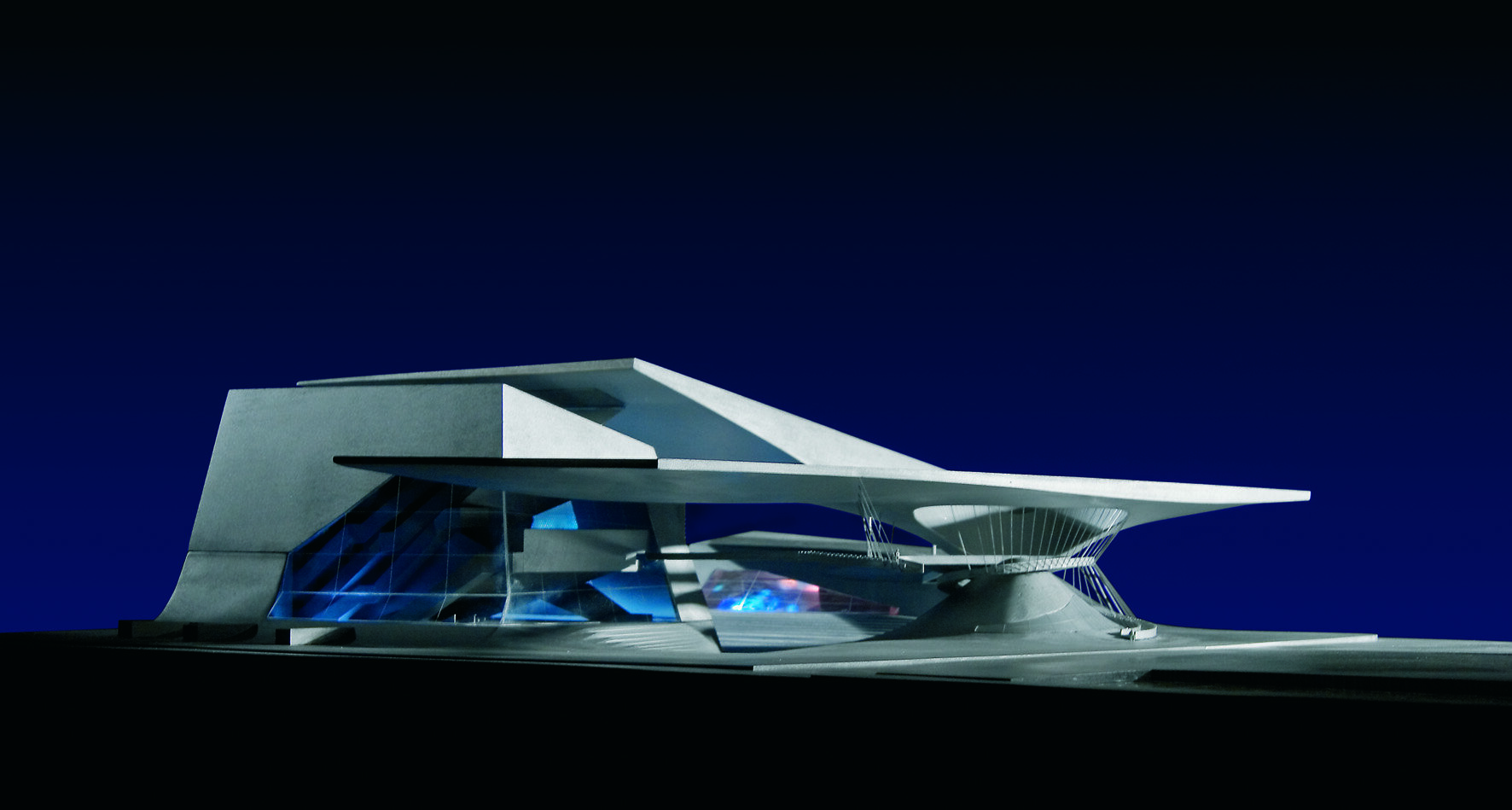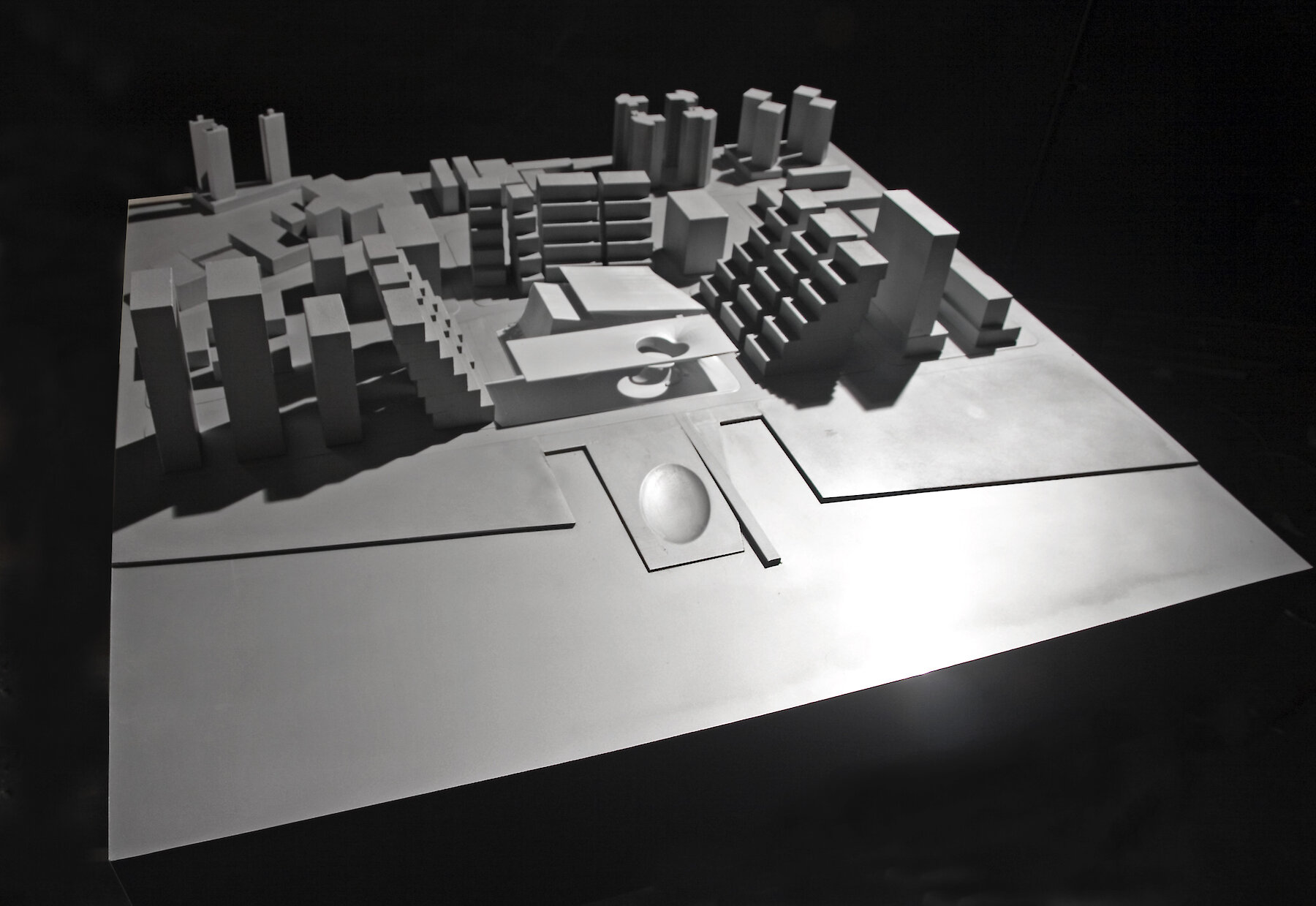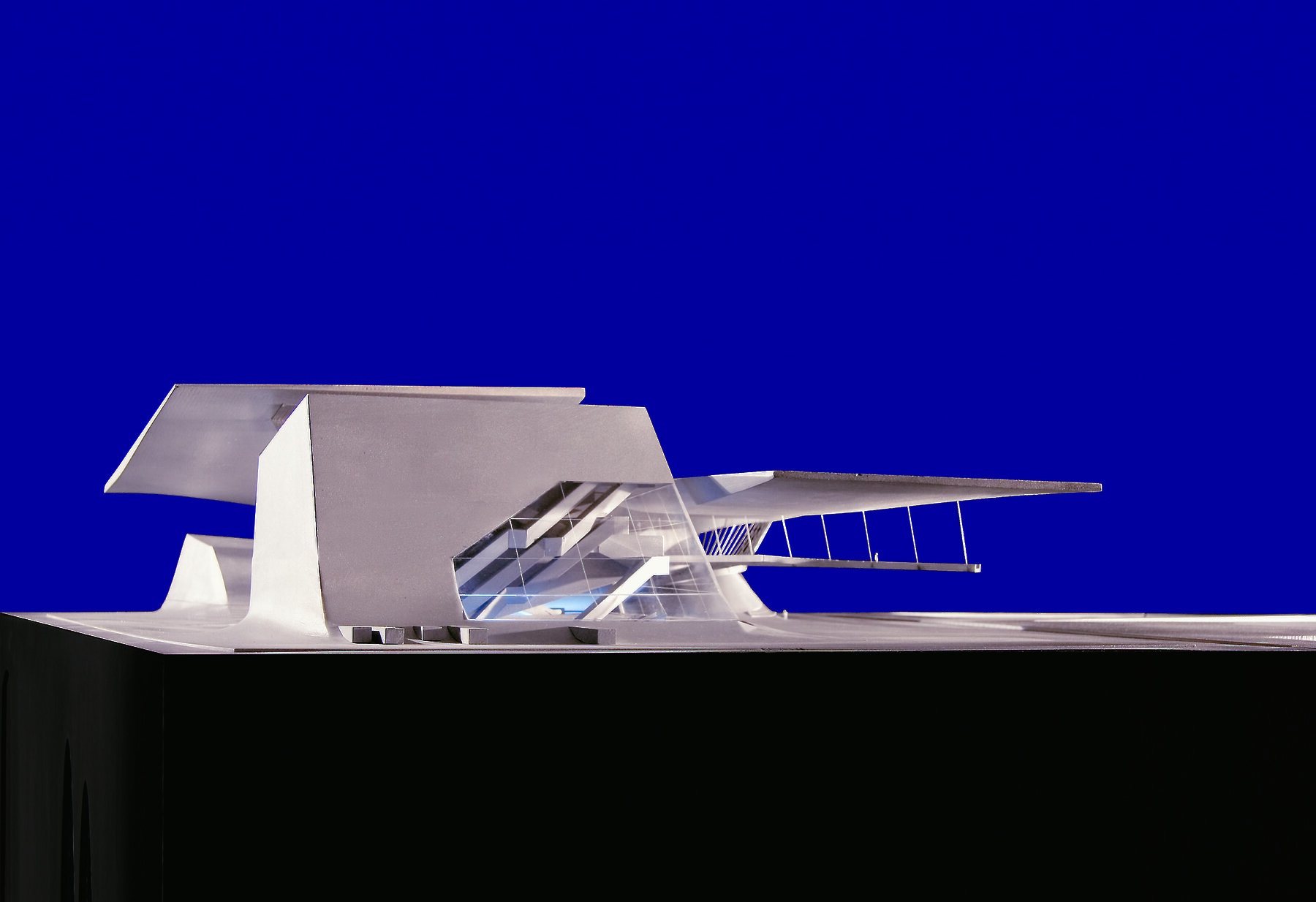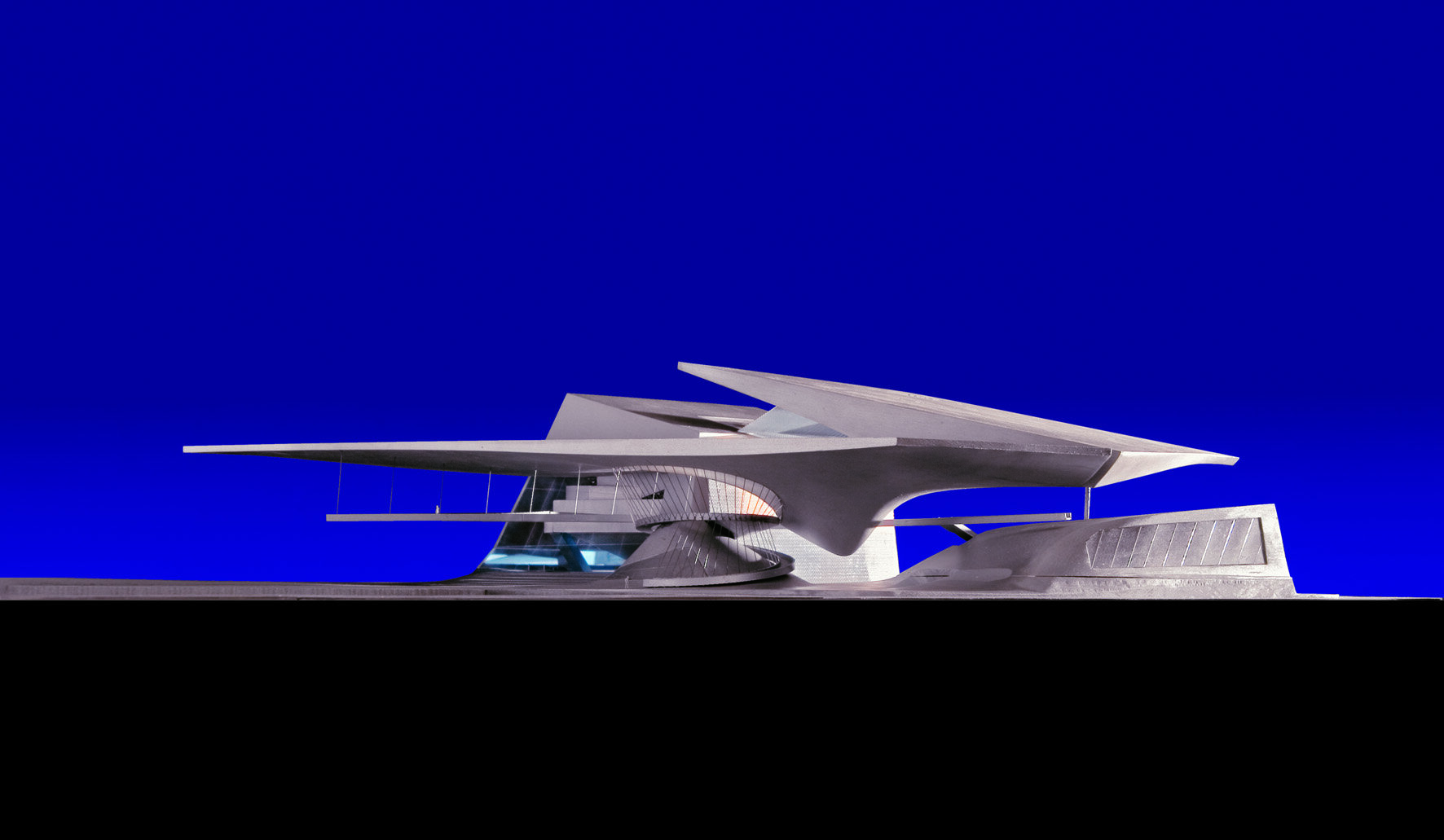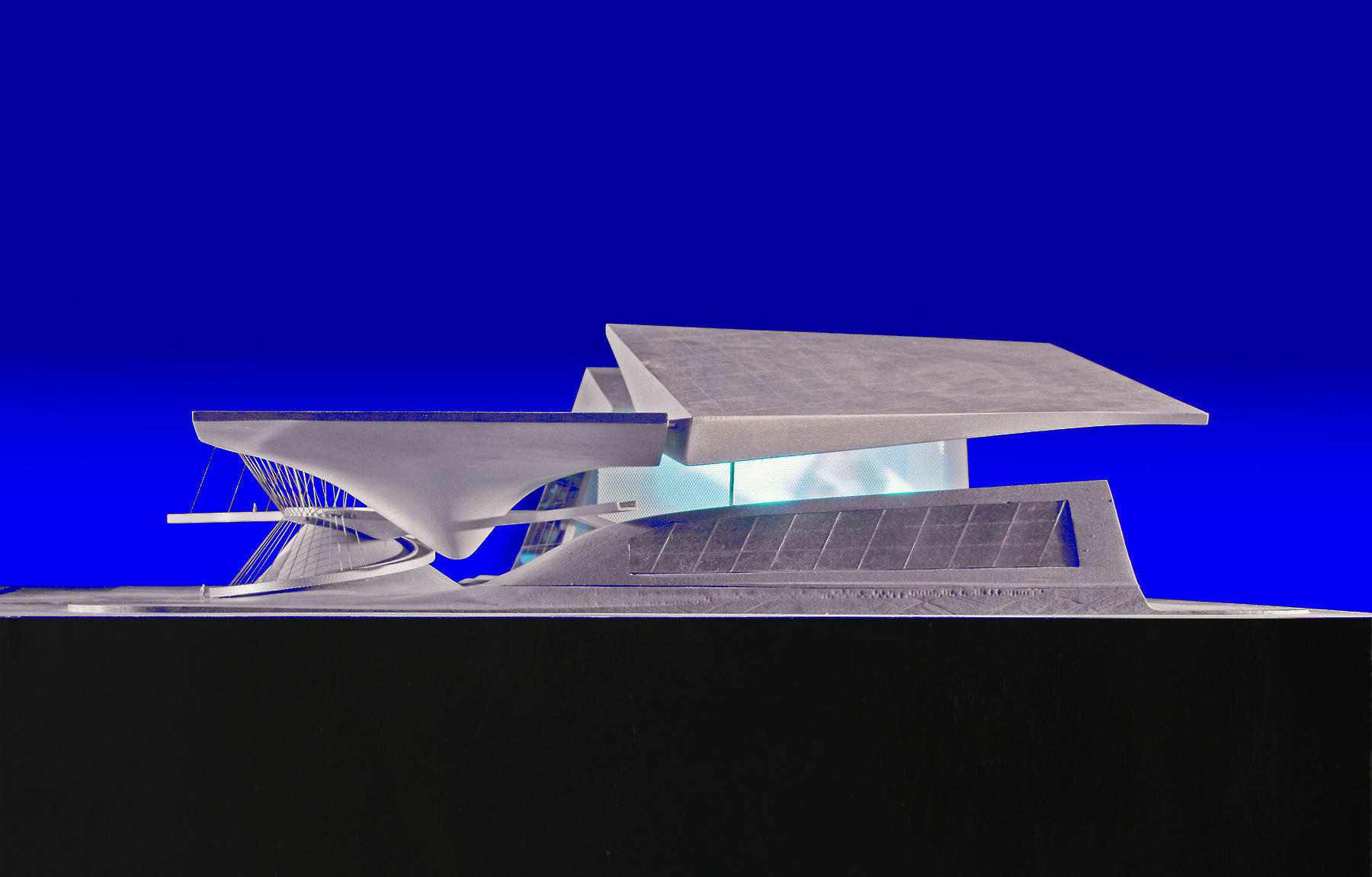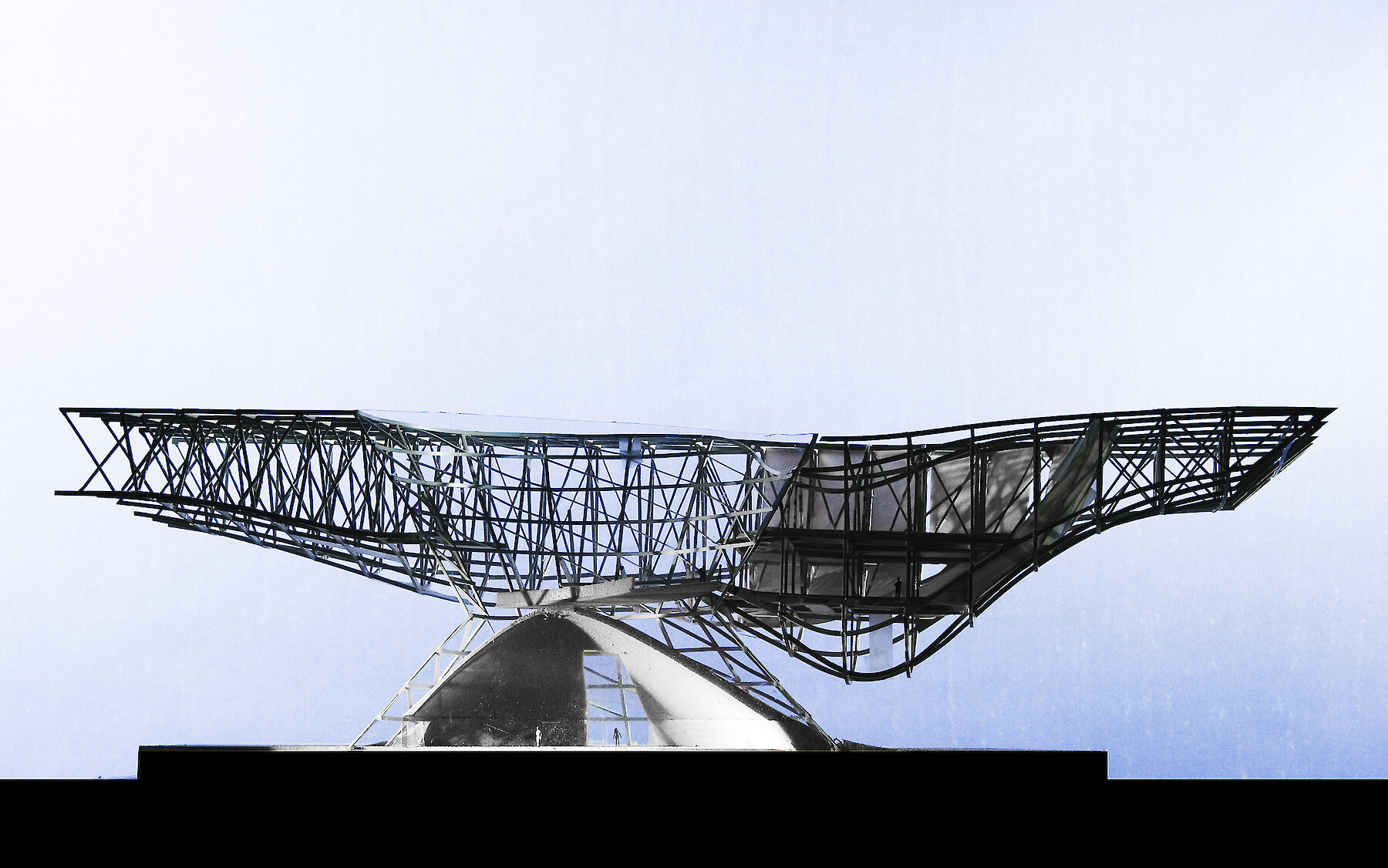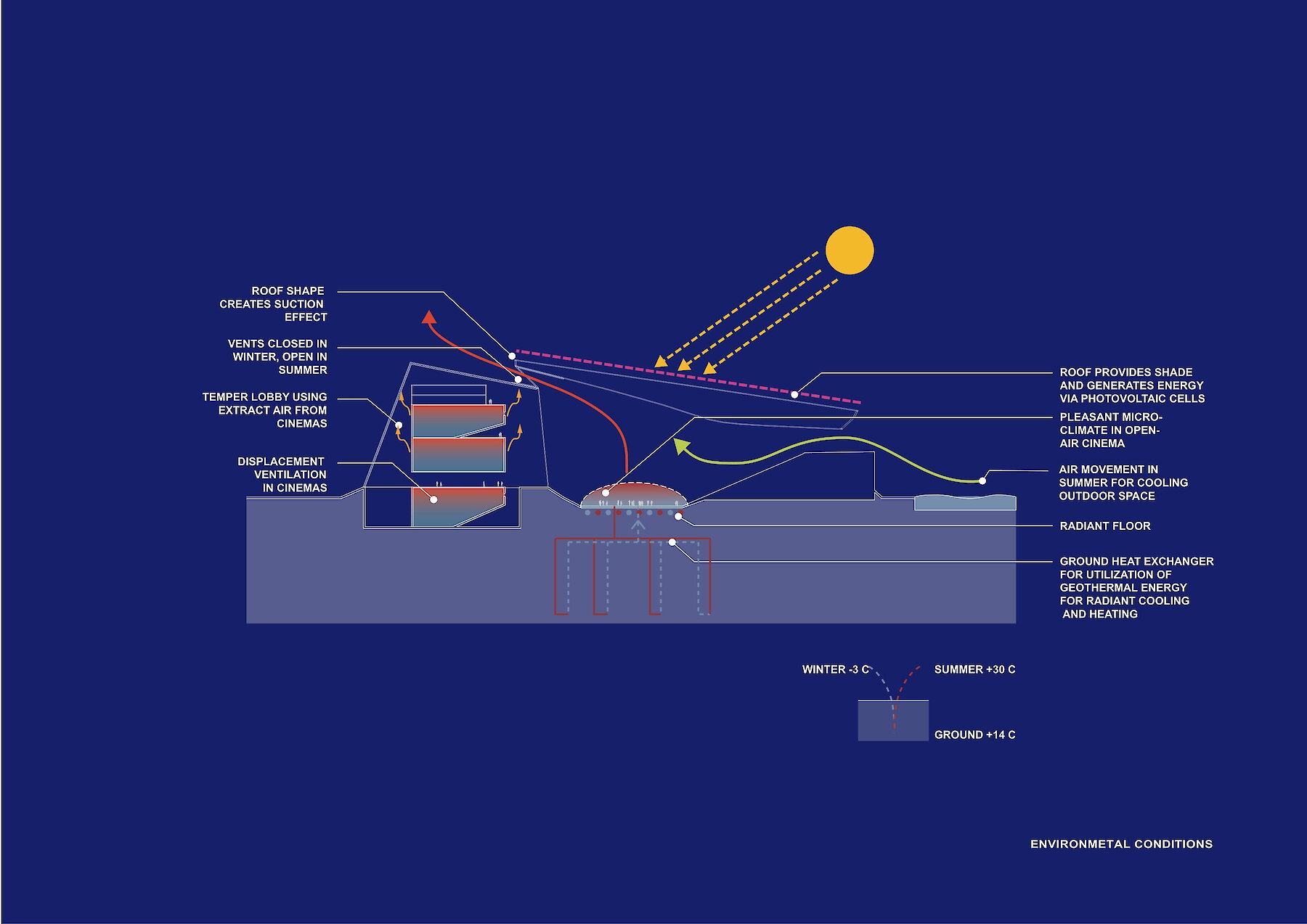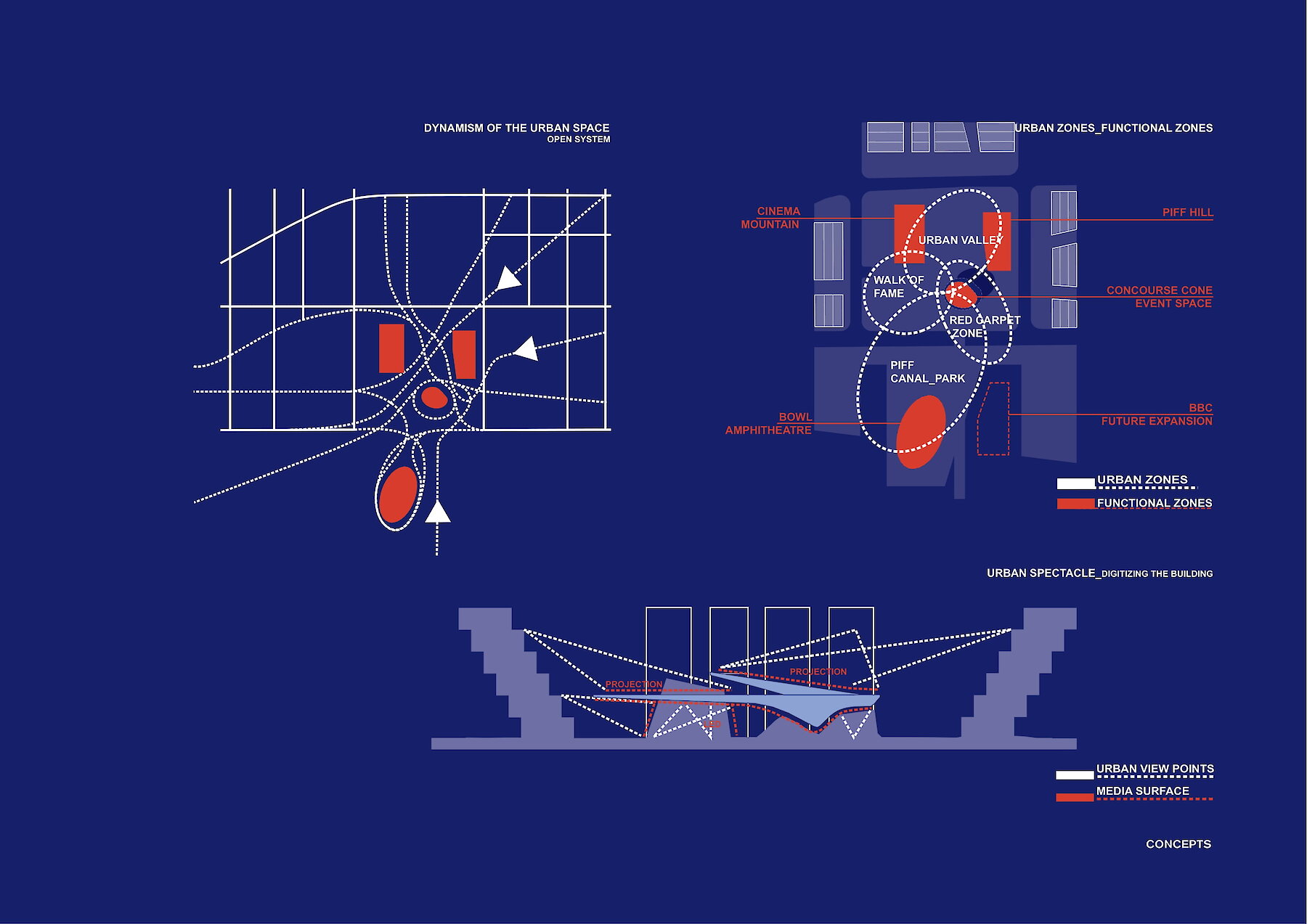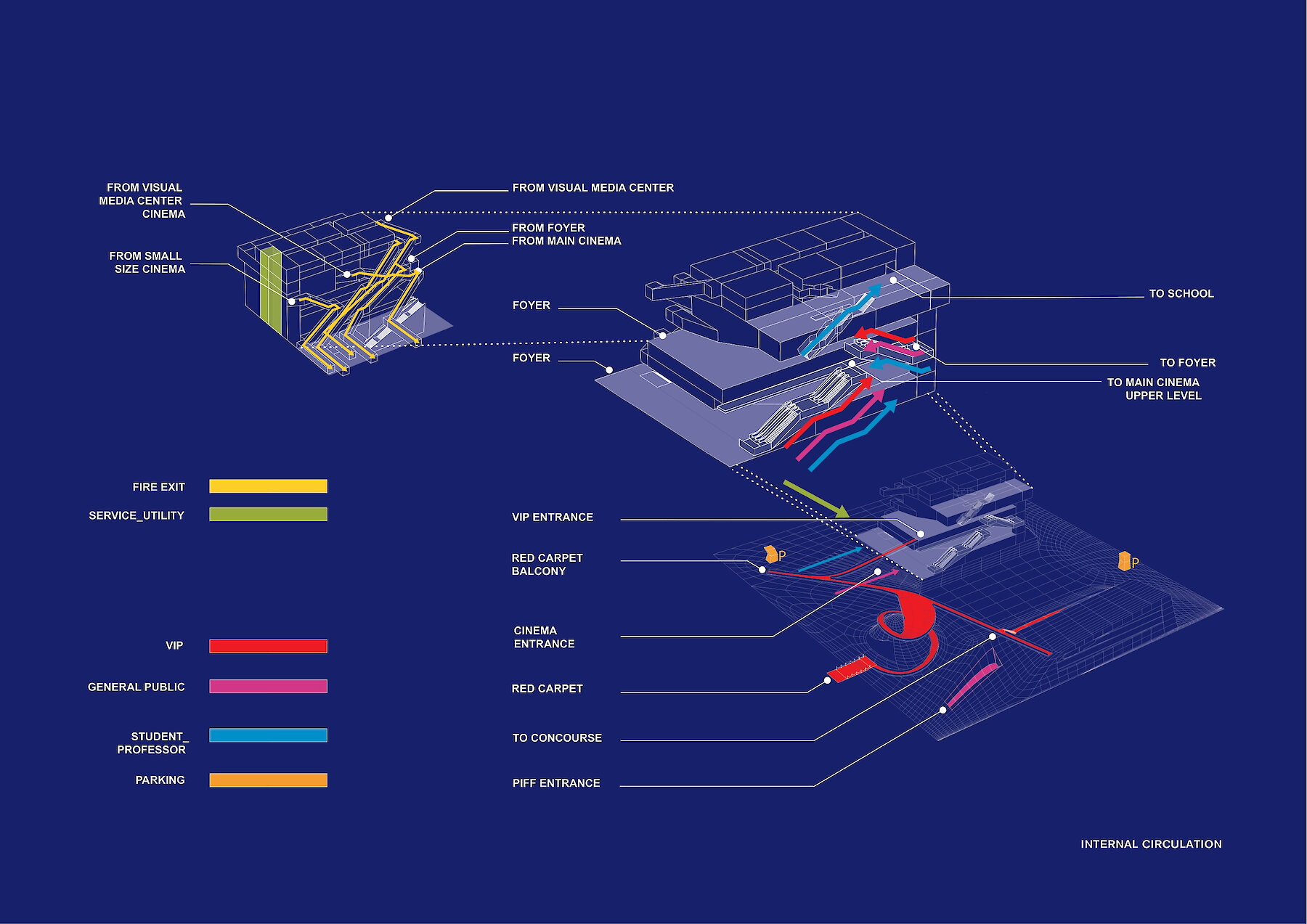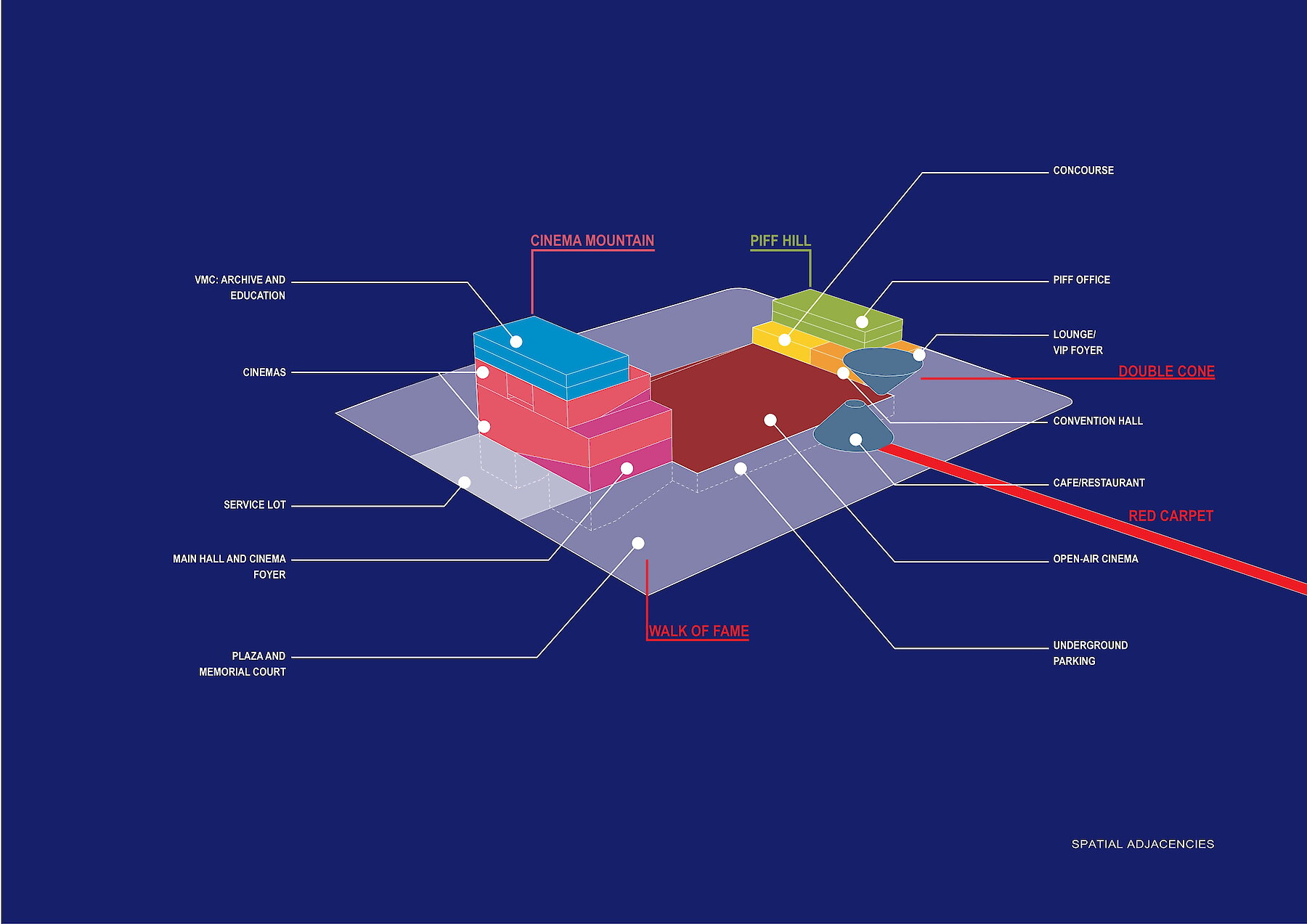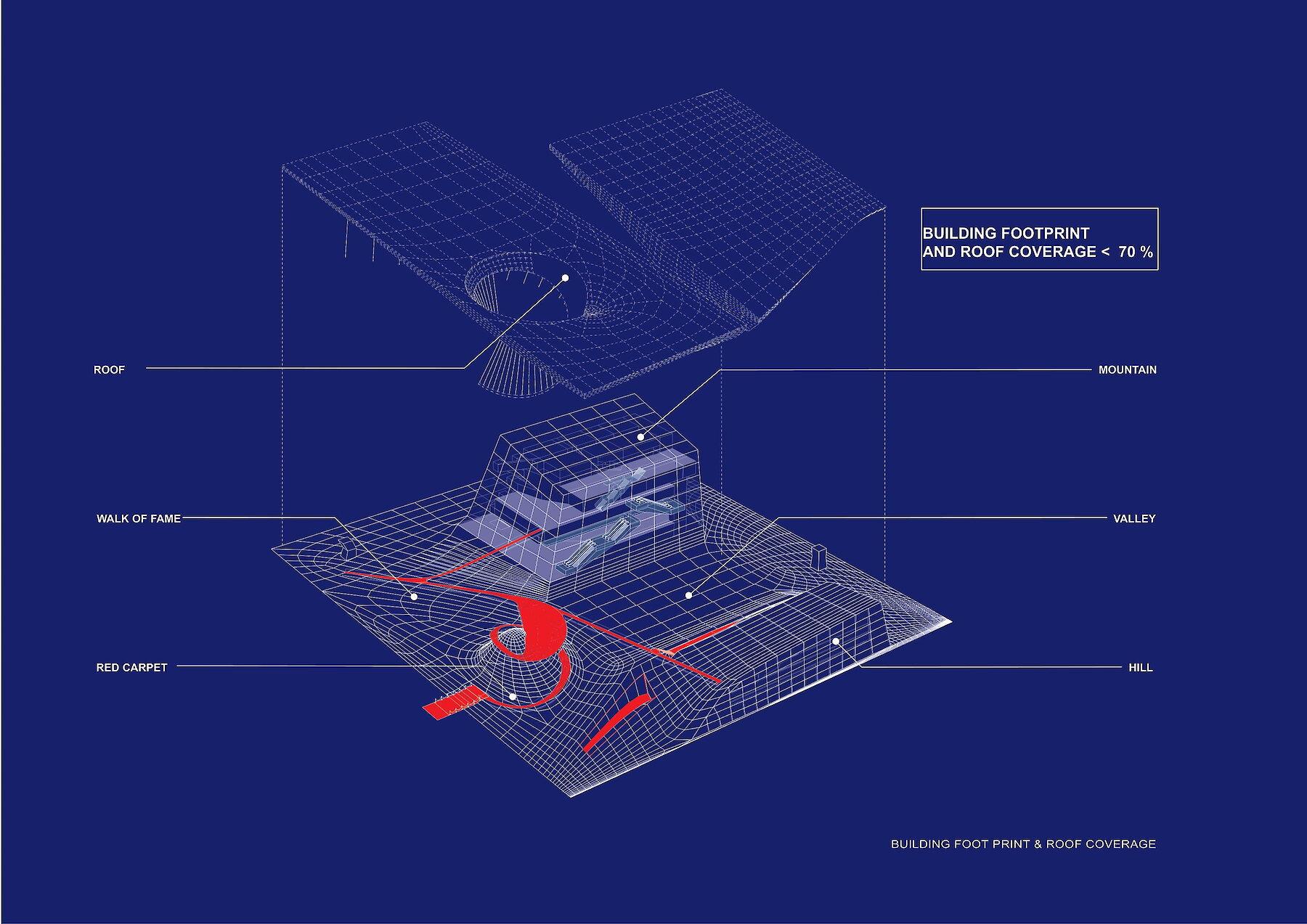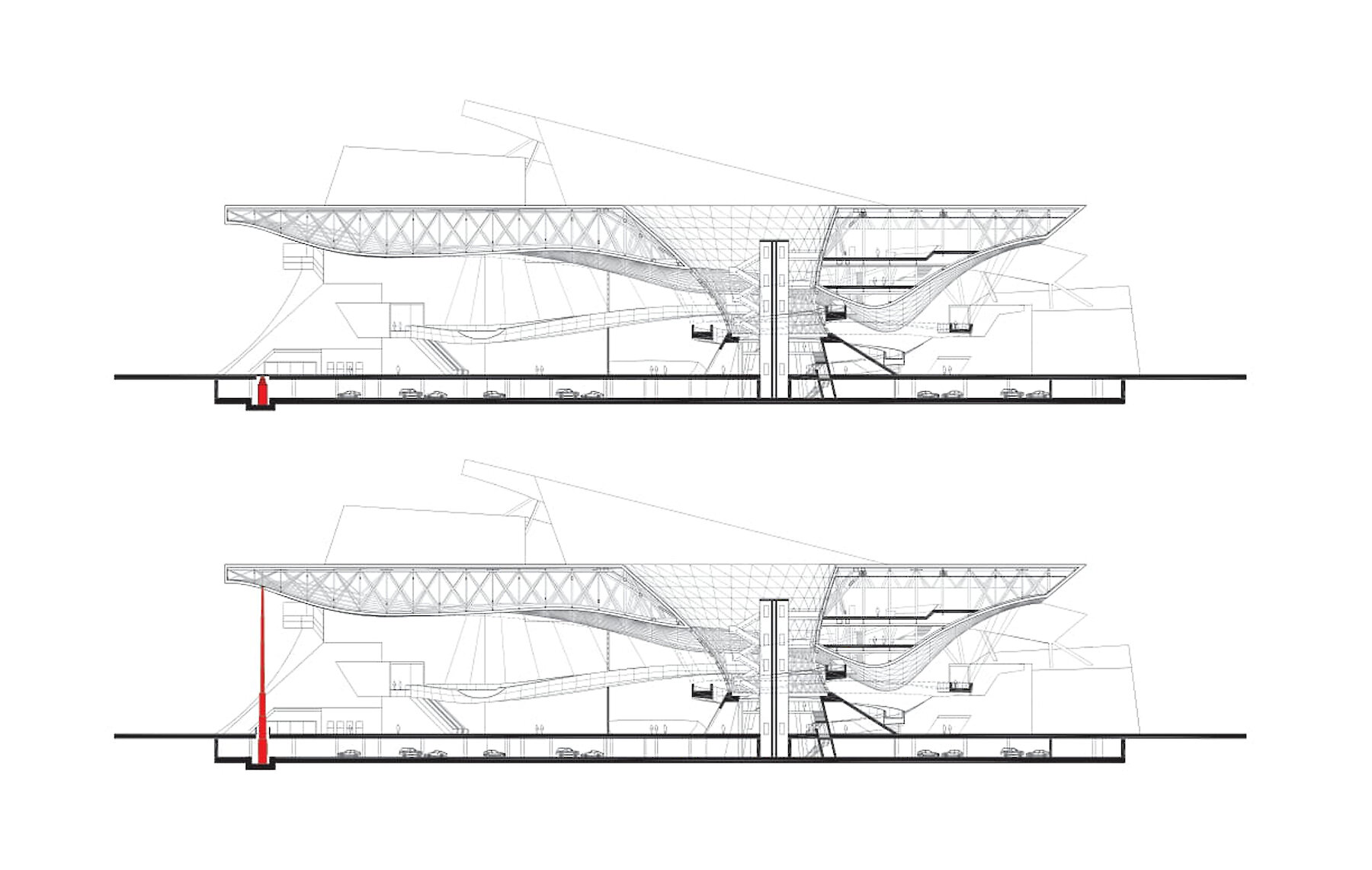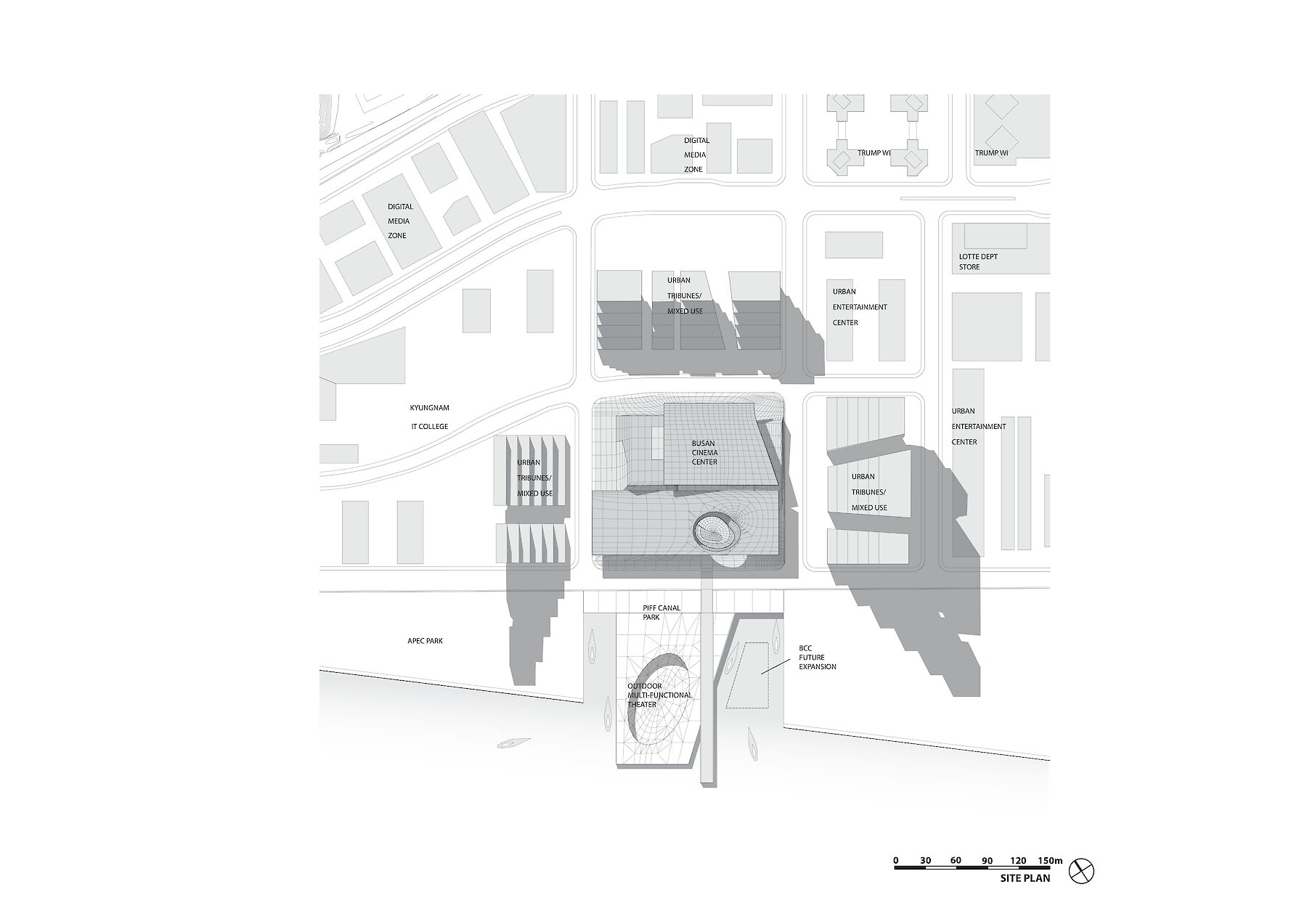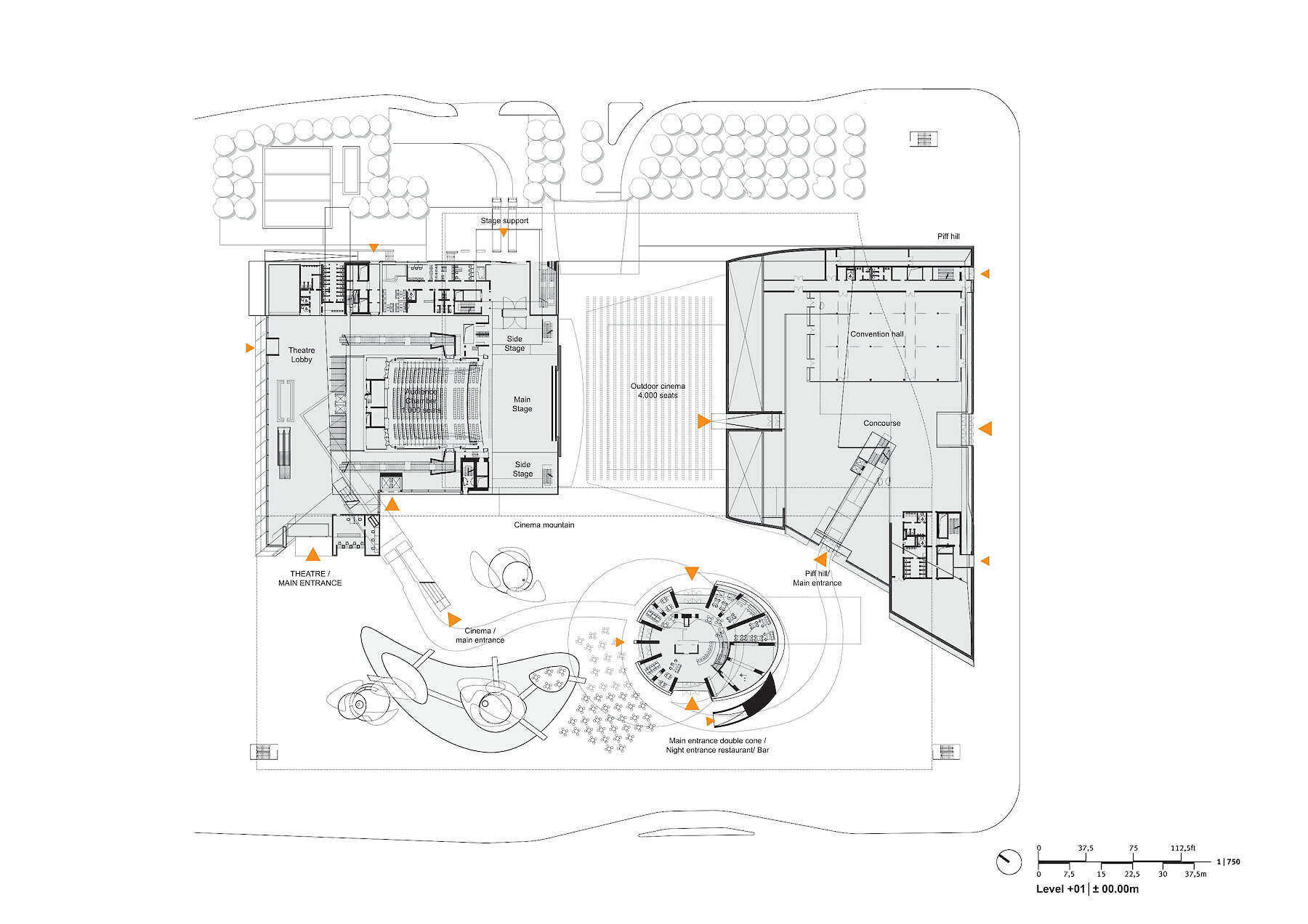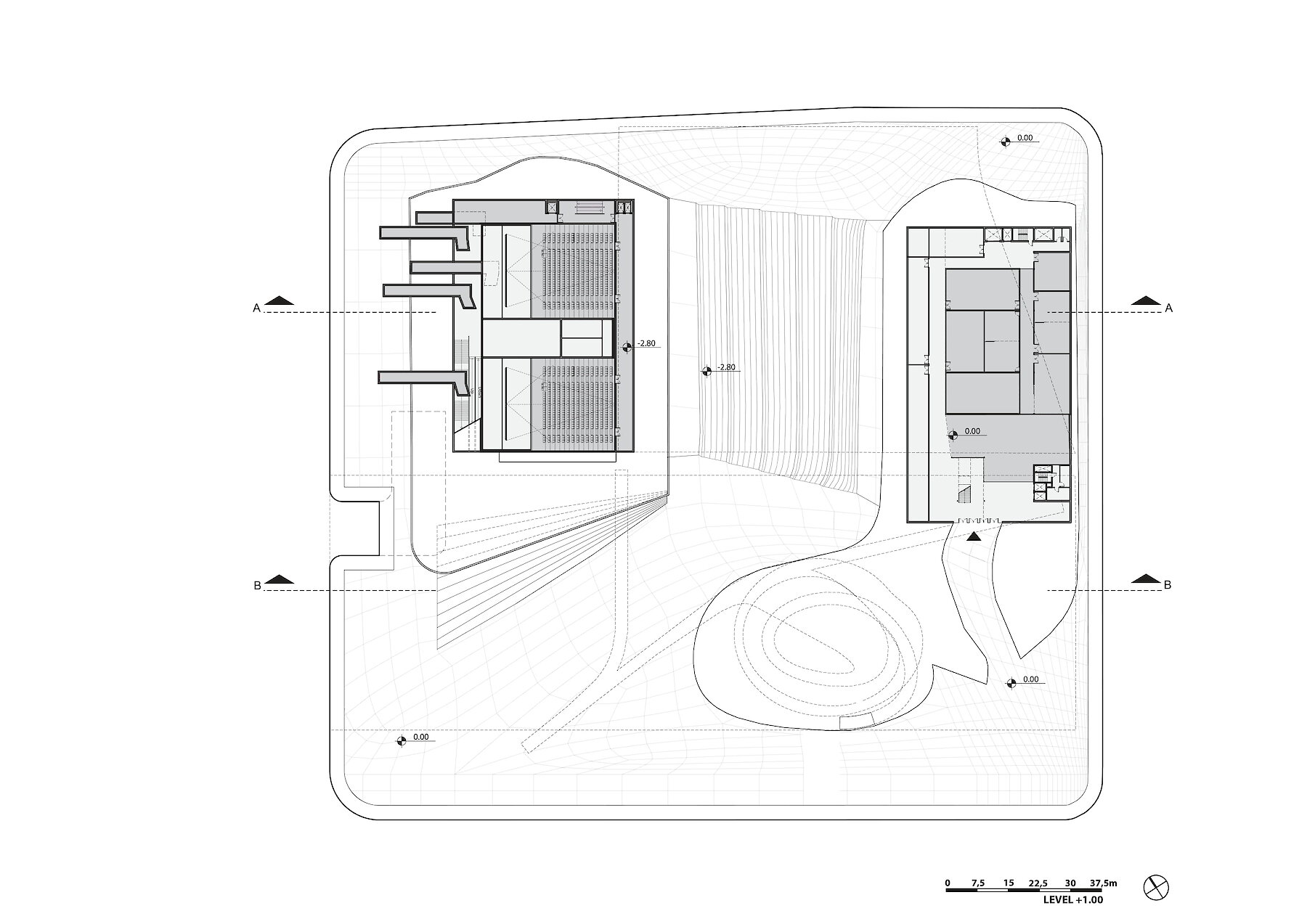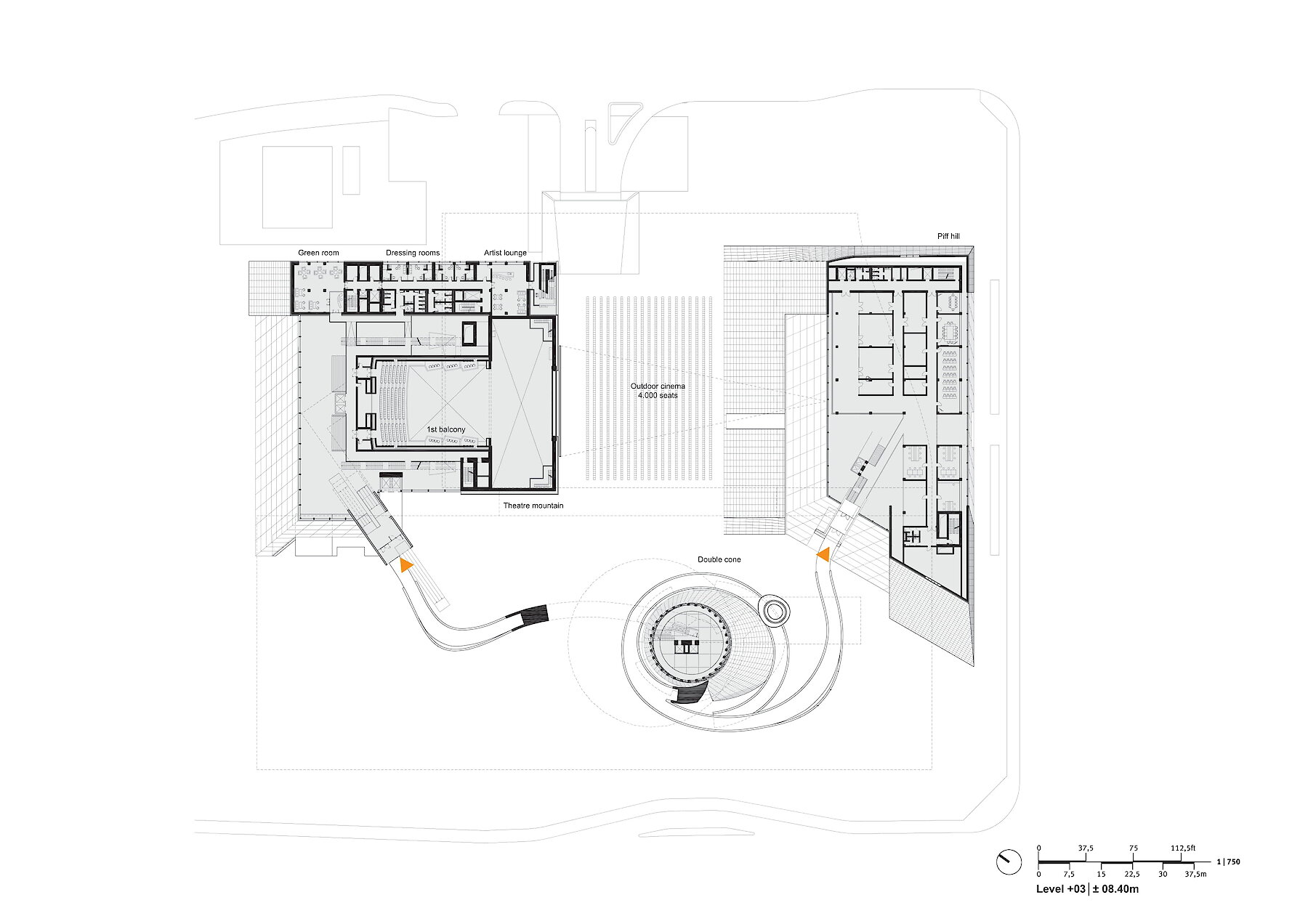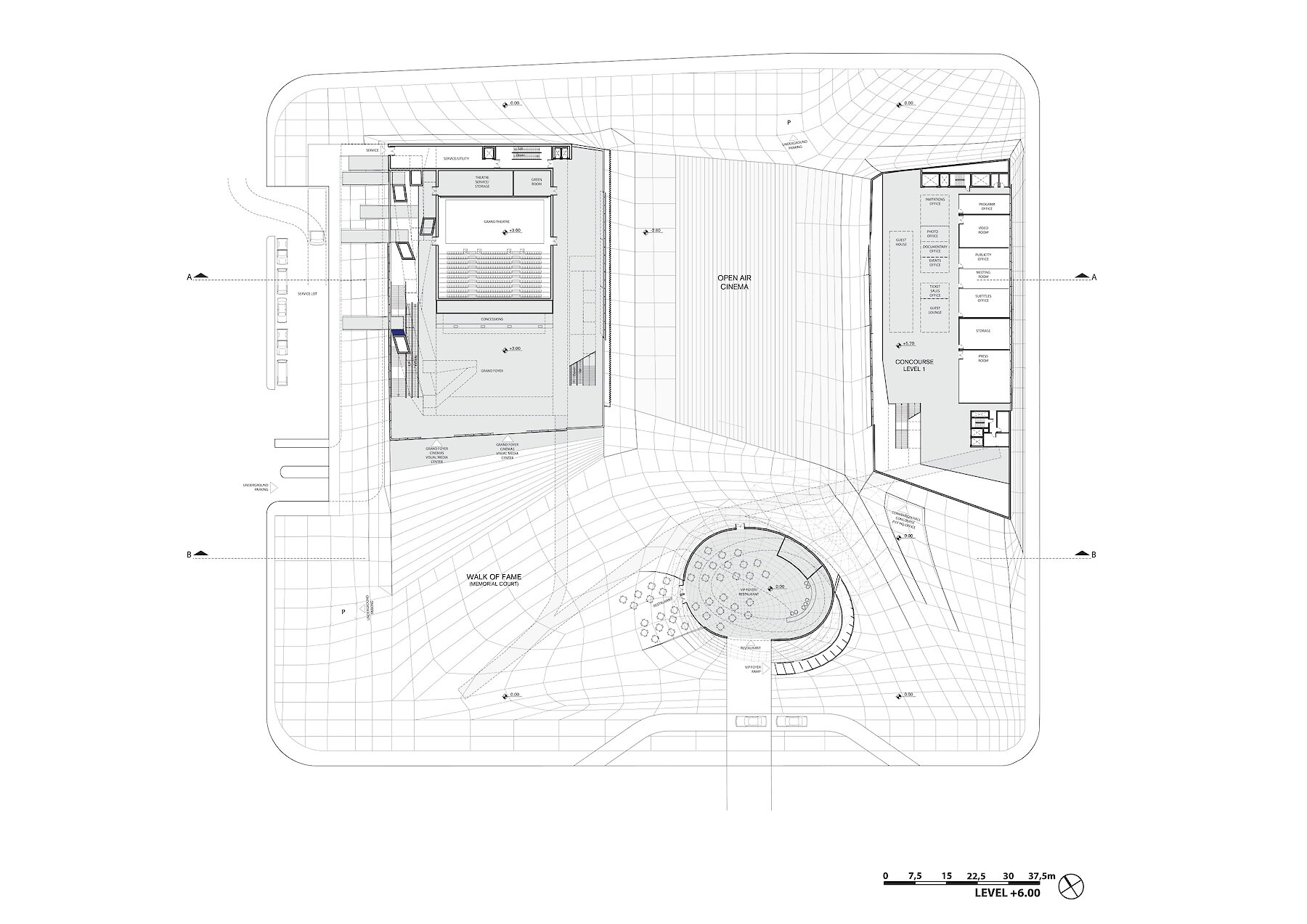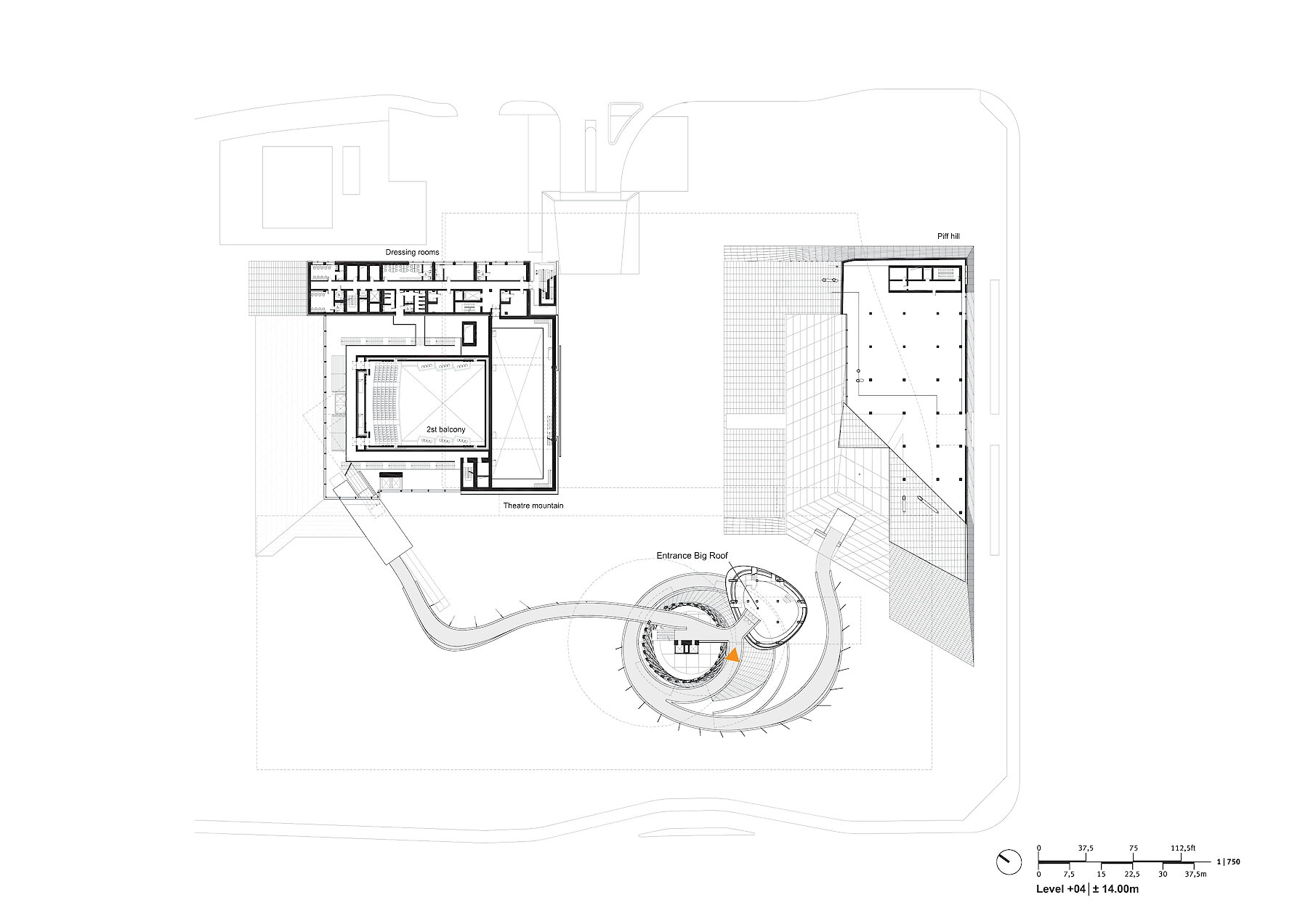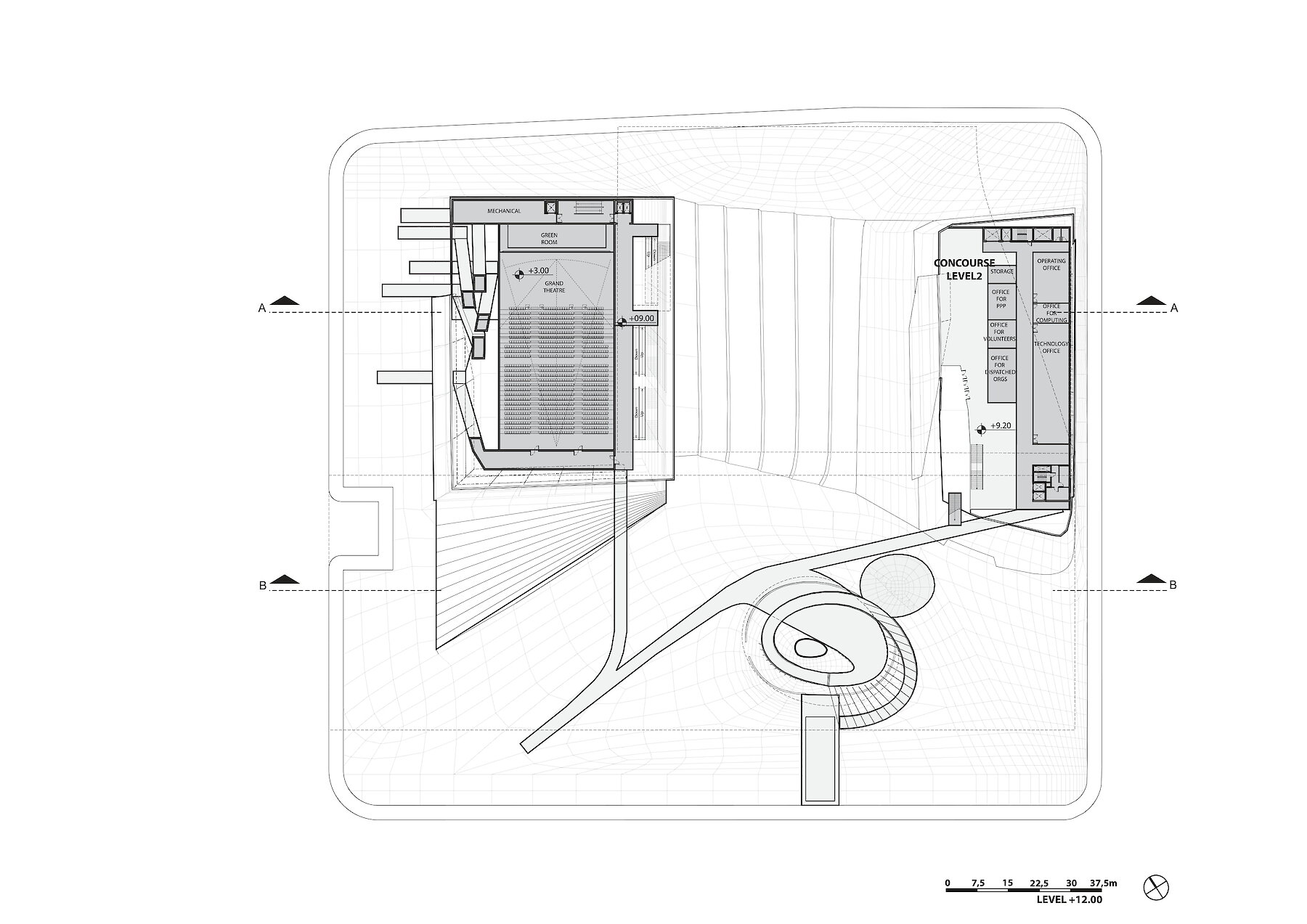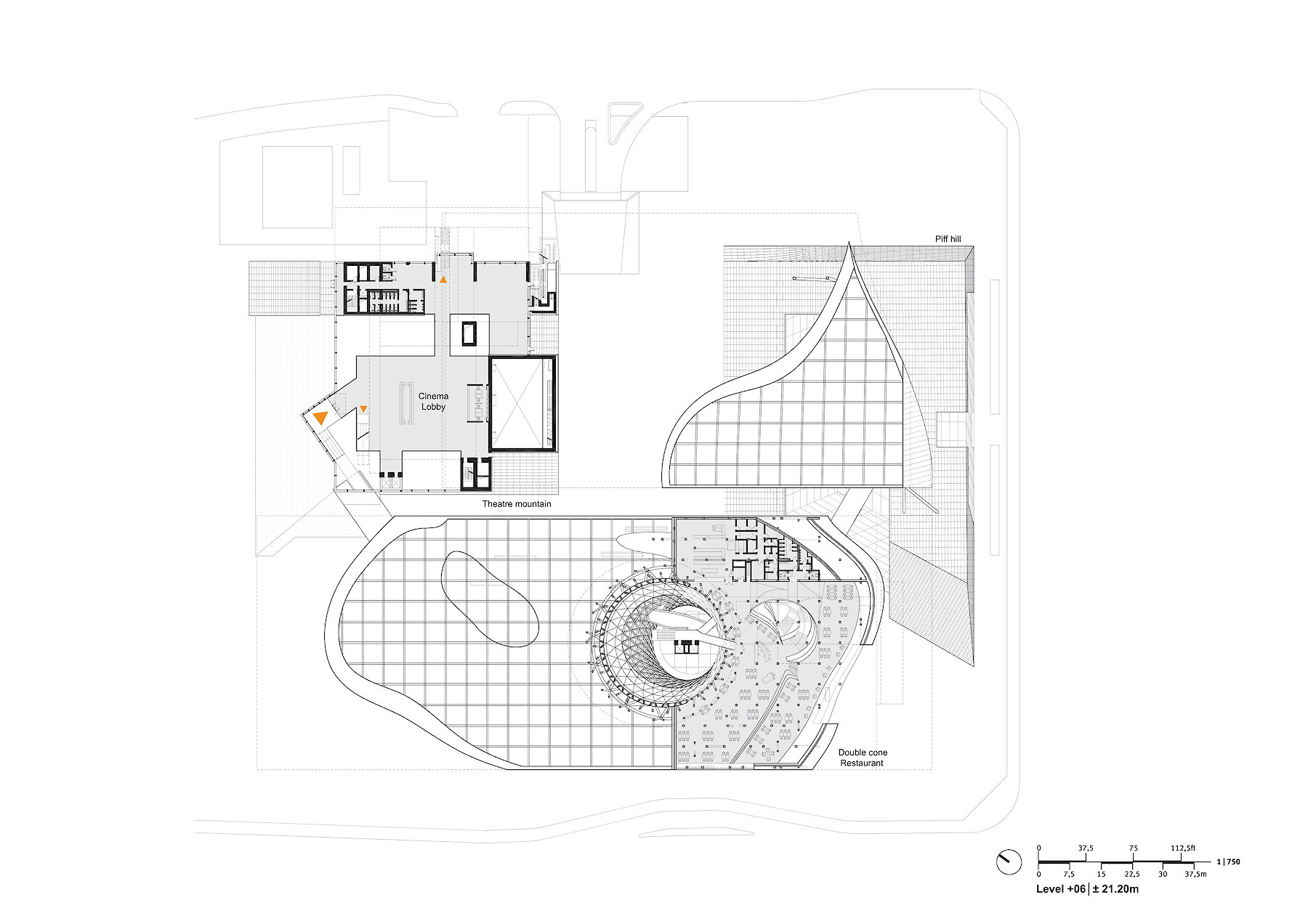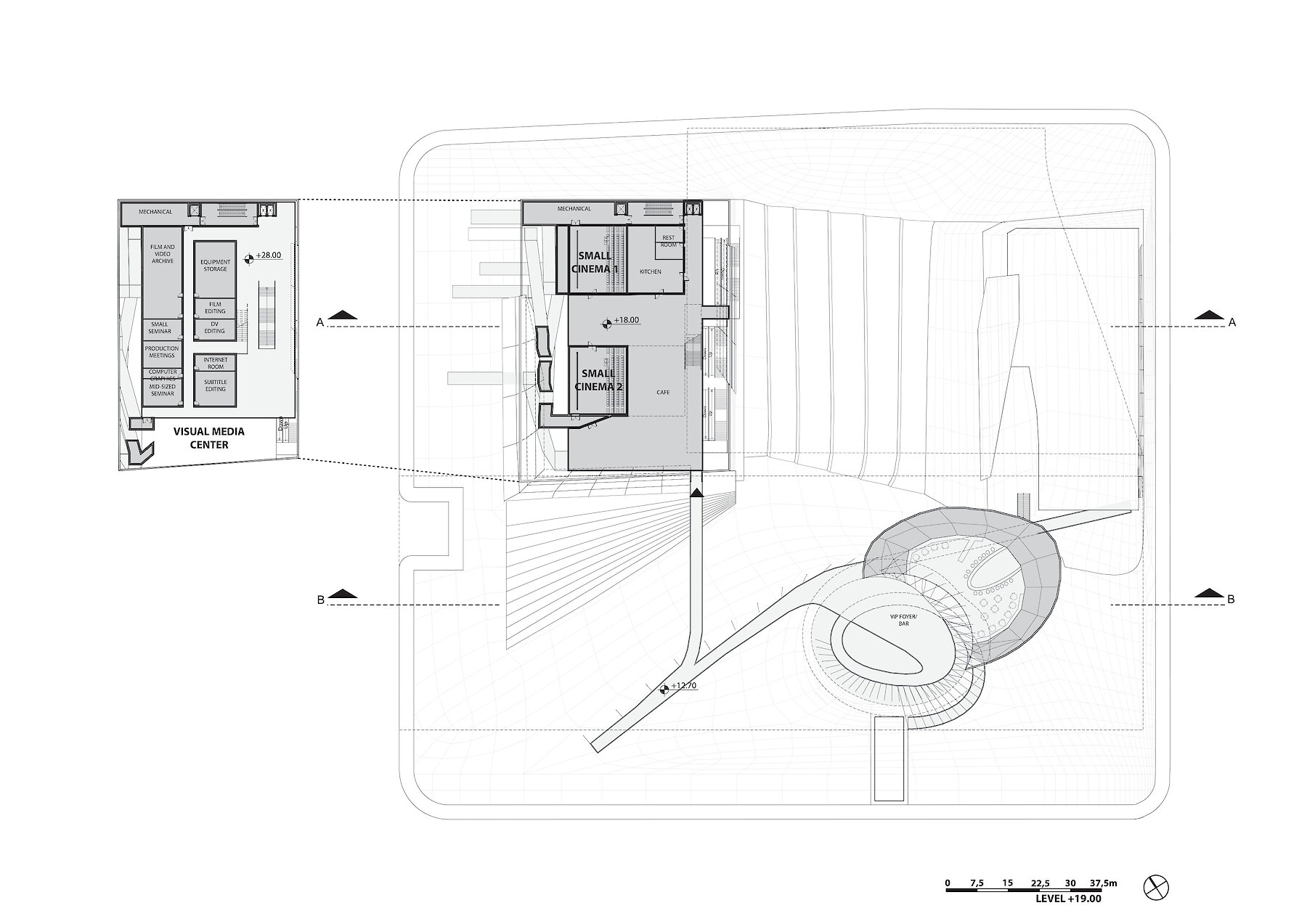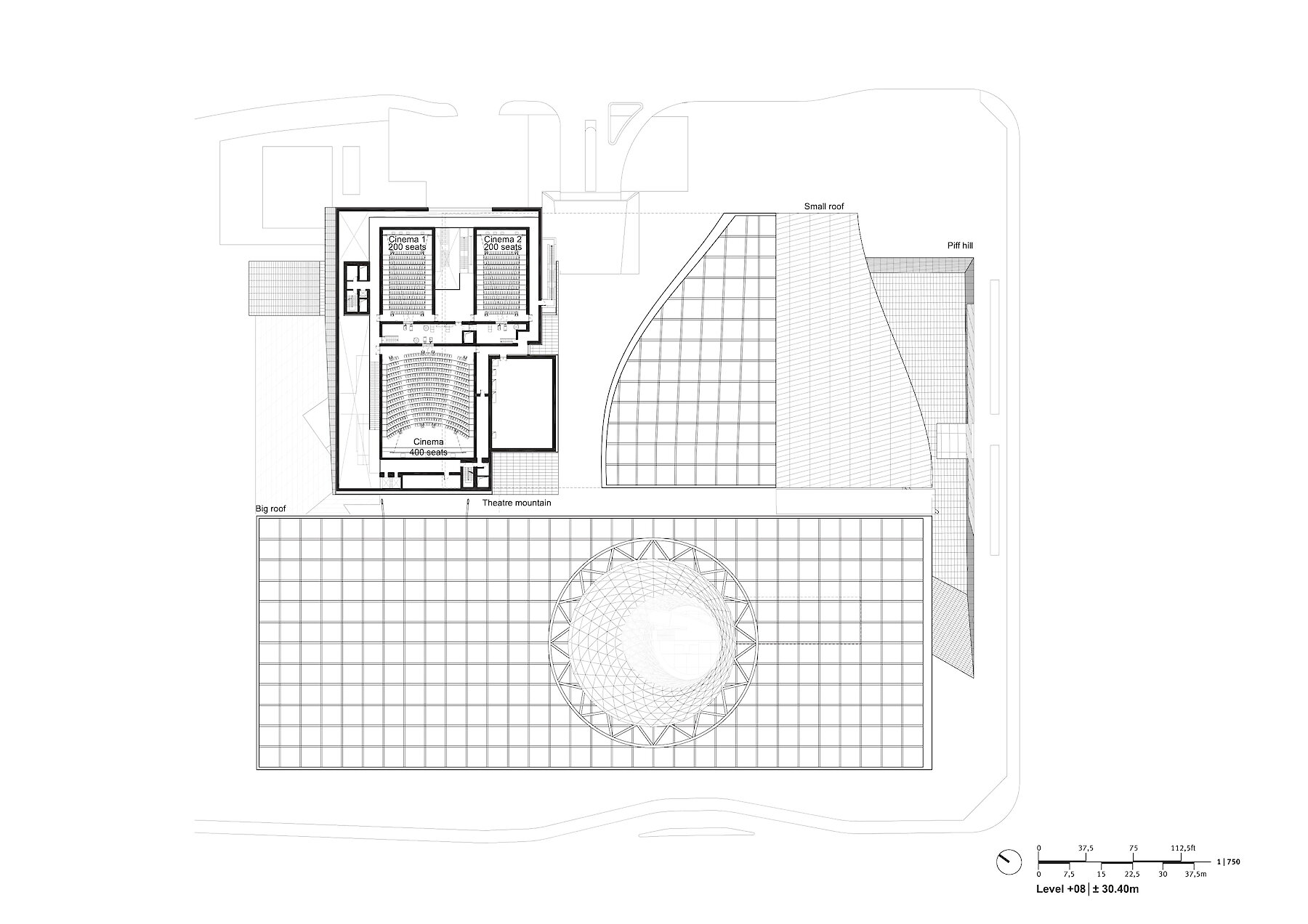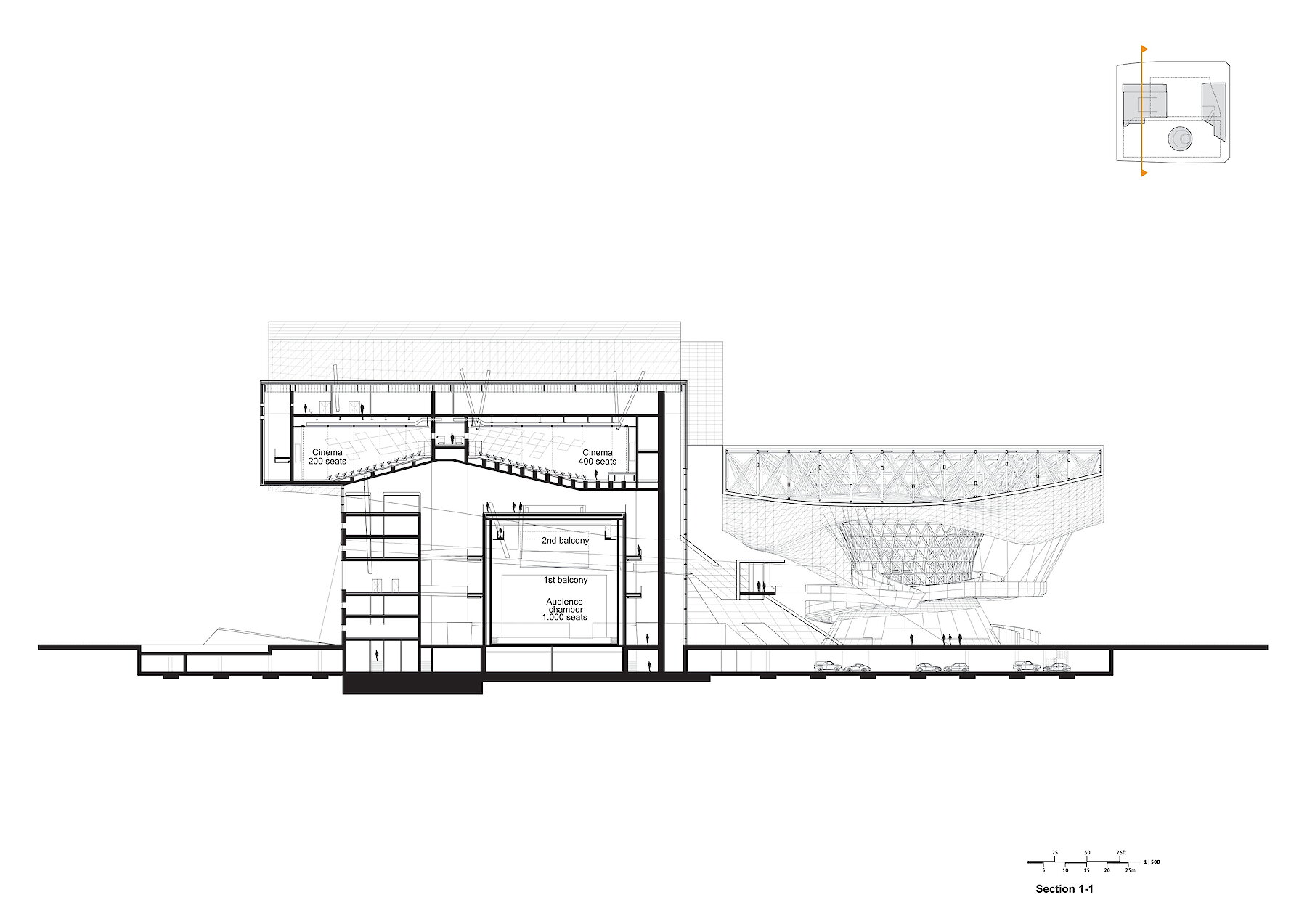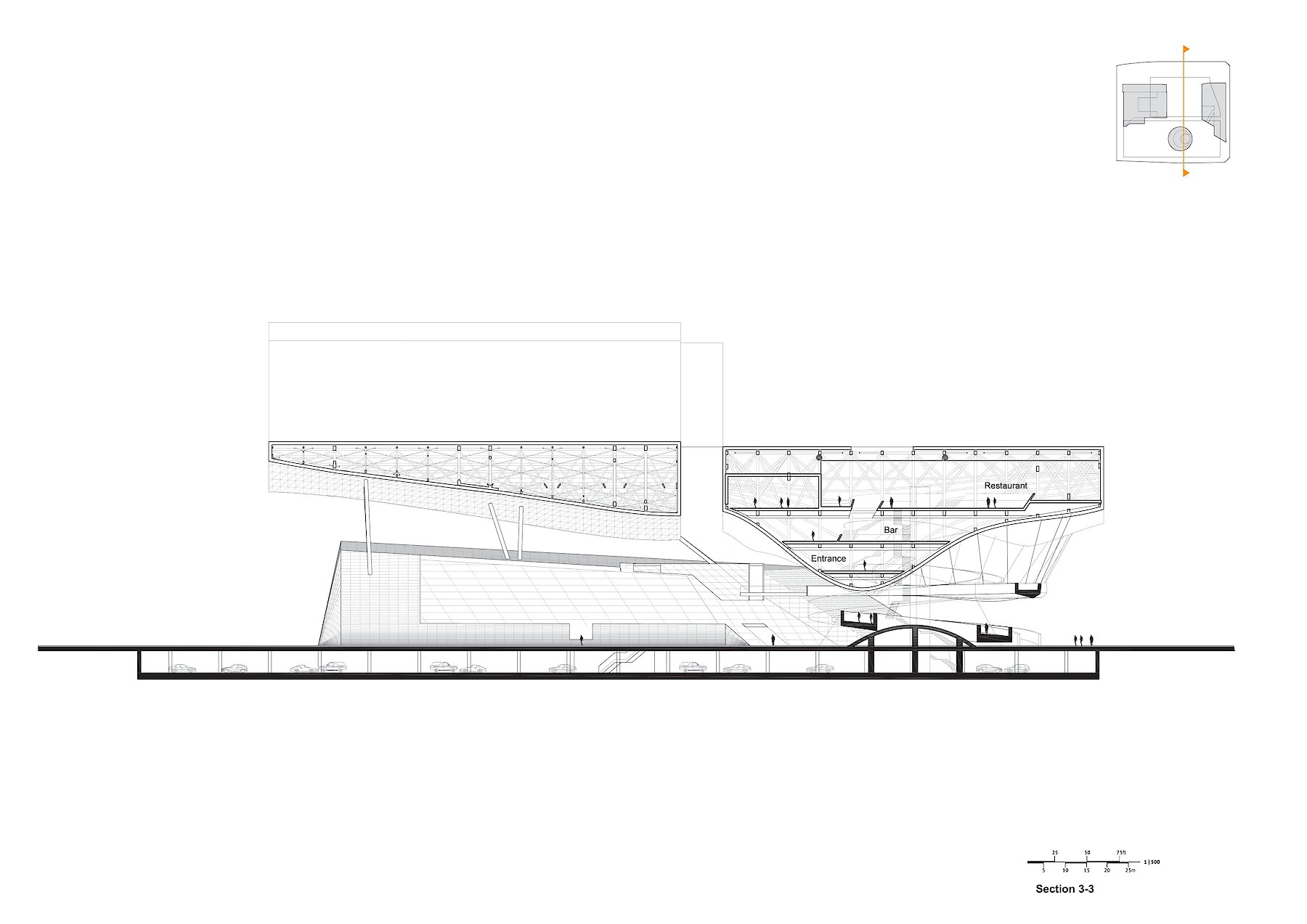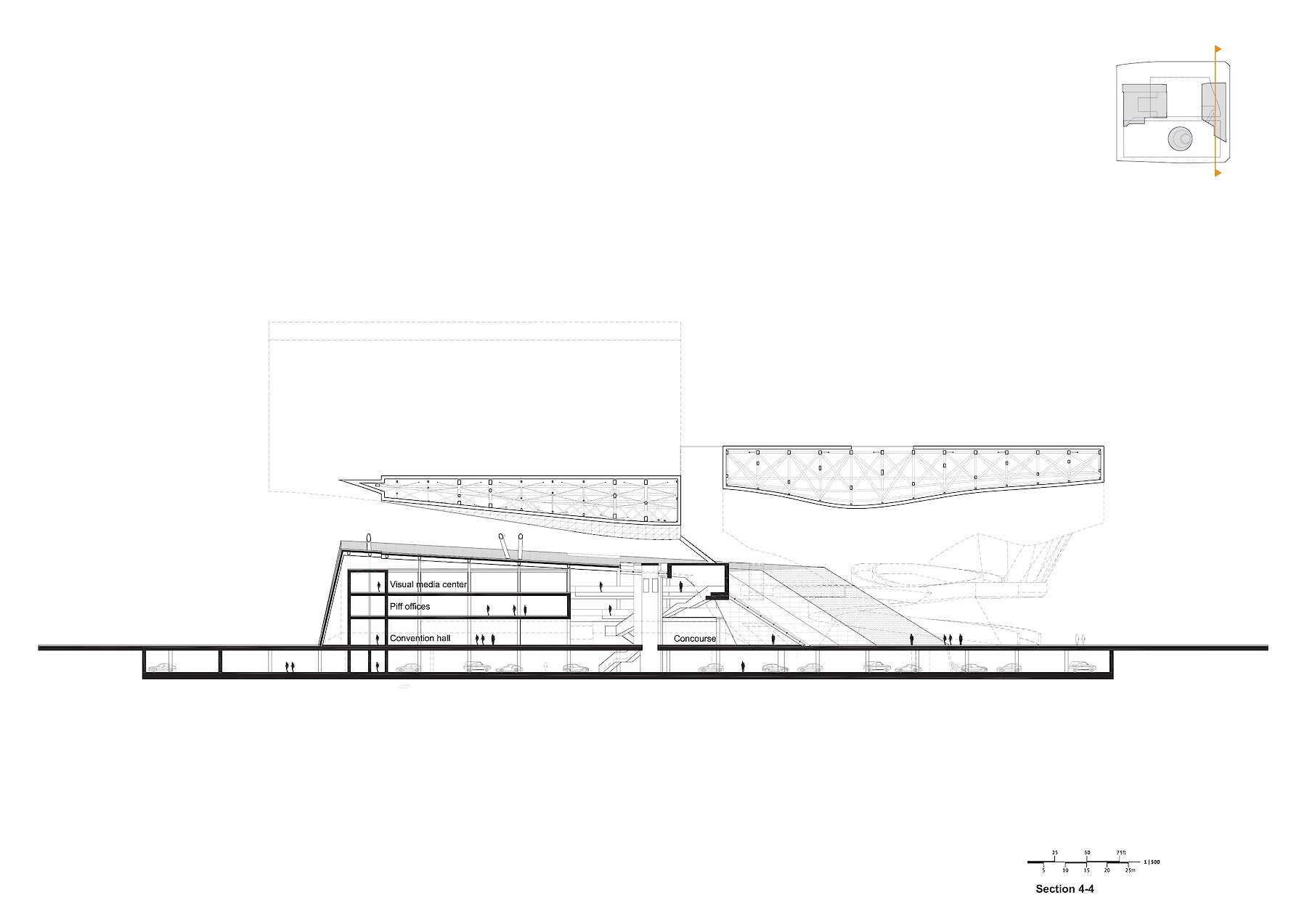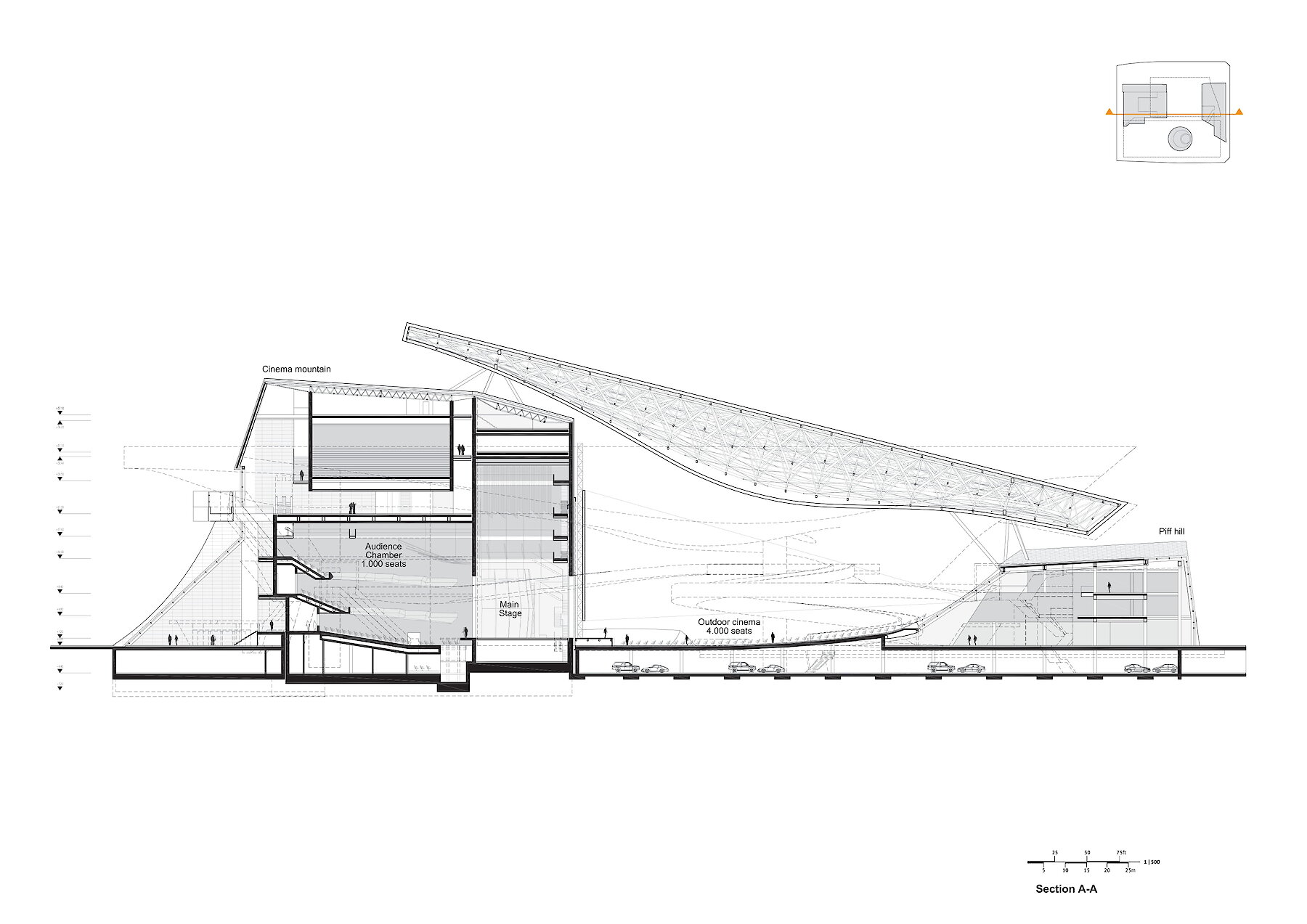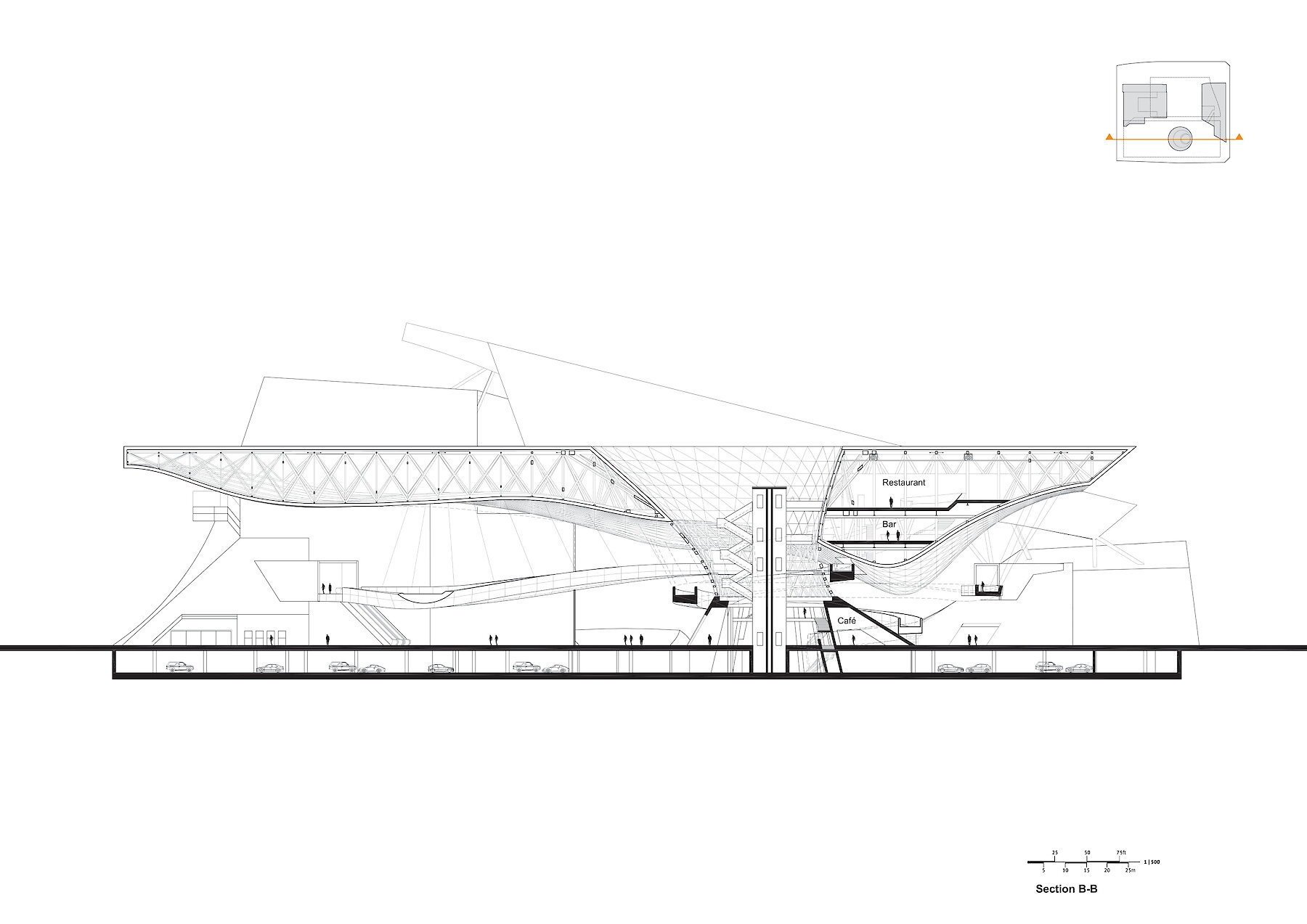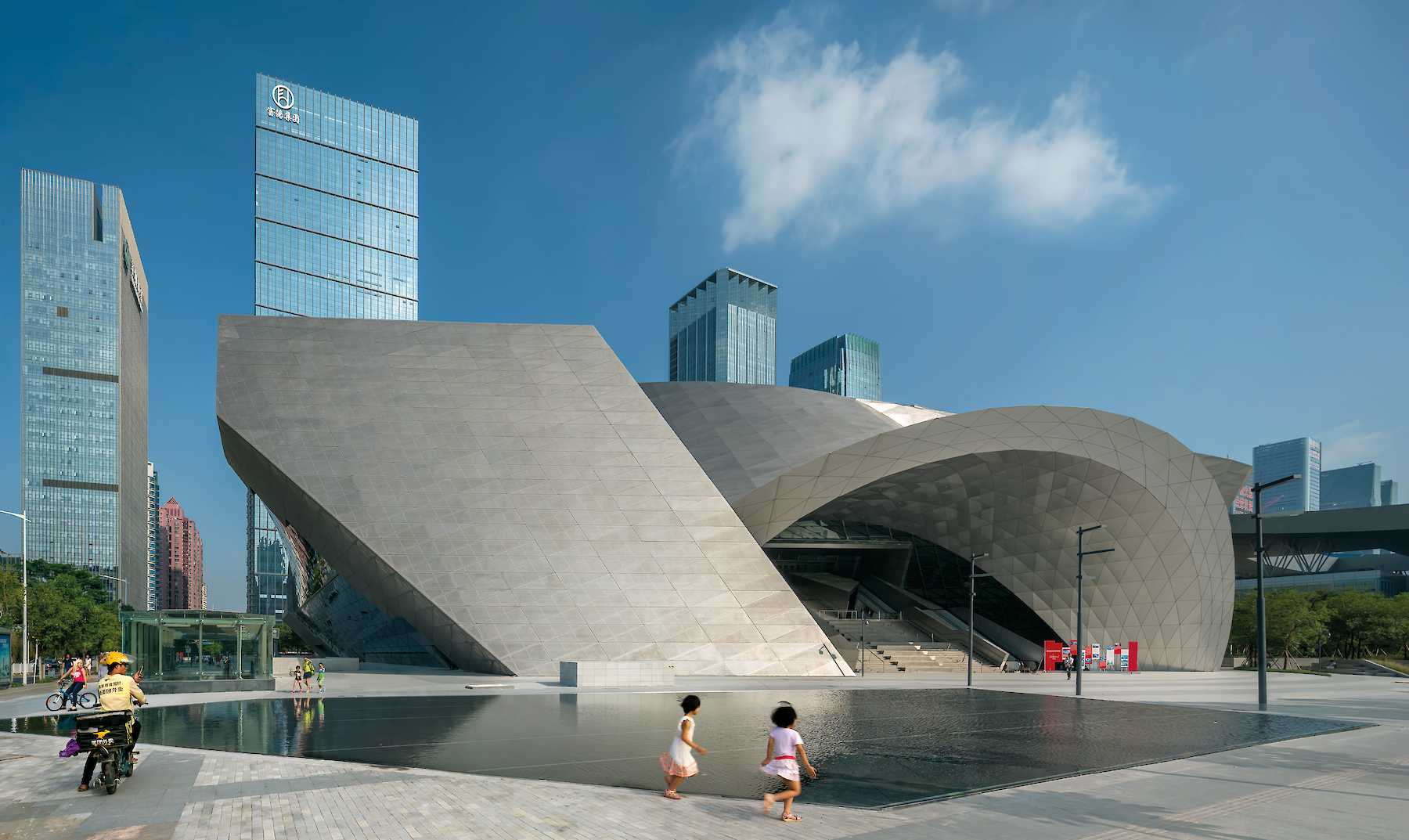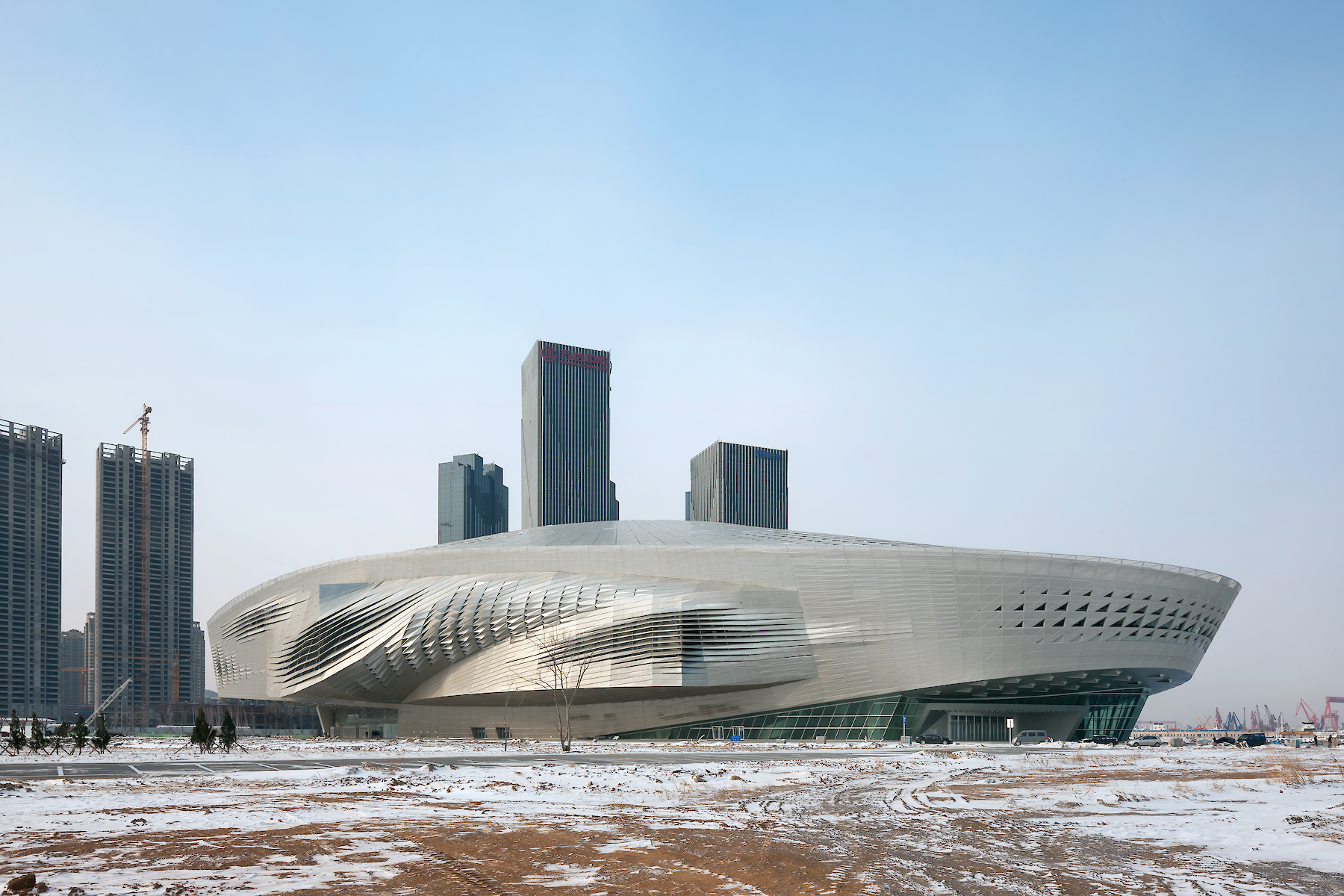Busan Cinema Center
A World Record Flying Roof
A World Record Flying Roof
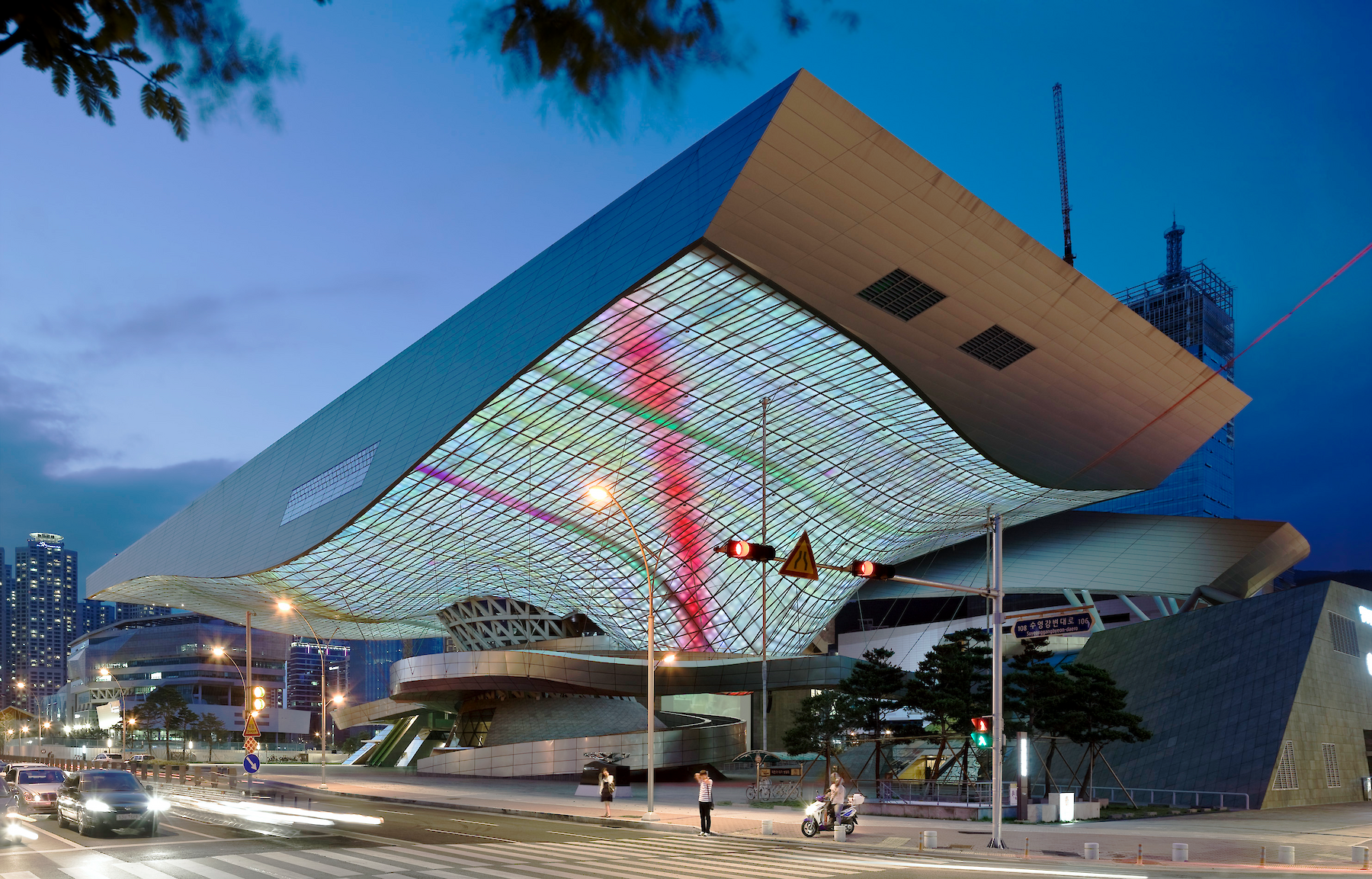
The Busan Cinema Center provides a new intersection between public space, cultural programs, entertainment, technology, and architecture, thereby creating a vibrant landmark within the urban landscape.

Initial sketch for the project by Wolf dPrix
Coop Himmelb(l)au
Quote
“The basic concept of this project was the discourse about the overlapping of open and closed spaces, and of public and private areas. While the movie theaters are located in a mountain-like building, the Center’s public space is shared between an outdoor cinema and a huge public space called Red Carpet Area – i.e. reception area.”
Project info
A “virtual sky” made of saturated LED elements connects building objects and plaza-zones into a continuous, multifunctional urban space. Media, technology, entertainment, and leisure are merged in an open architecture of changeable and bespoke event experiences. The Cinema Center also hosts the annual Busan International Film Festival (BIFF).
Coop Himmelb(l)au’s concept envisions an urban plaza where functions overlap: Double Cone, Cinema Mountain, Urban Valley, Red Carpet Zone, and BIFF Hill. The complex is sheltered by two roofs whose outdoor ceilings are clad with computer-controlled LED elements. The largest of the roofs includes a column-free cantilever of 85 meters, covering the multifunctional Memorial Plaza. The complex contains a theater, indoor and outdoor cinemas, convention halls, office spaces, creative studios, and dining areas in a blend of connected indoor and outdoor public spaces. Their flexible functionalities allow for various uses both during the annual festival and the rest of the year, without interruption.
The “flying” roof
“The project, the firm’s first in South Korea, addresses the theme of the roof as an architectural element – a topic which Coop Himmelb(l)au has been concerned with for a long time. Already in the Renaissance and the Baroque era, the roof is transformed into a cupola, thereby achieving a particular significance. But it was Oscar Niemeyer and Le Corbusier who define the roof not anymore as a mere element of protection, but as a frame for the most diverse concepts. In Niemeyer’s house in Rio de Janeiro, the roof is no longer following the floor plan but is framing the view of the surroundings and nature. The roof of Le Corbusier’s Unité d’Habitation in Marseille is itself a landscape through its sculptural articulation. Based on these ideas, Coop Himmelb(l)au developed the roofs of the BMW Welt in Munich and of the Busan Cinema Center. The construction as a column-free roof covering a space comes closest to the idea of a “flying” roof, which is further differentiated by its three-dimensionally articulated ceiling and therefore not only a horizontal projection screen.”
Wolf dPrix
Architecture and cinema – the main roof
The dynamic LED-lit surface covering the undulating ceilings of the outdoor roof canopies gives the Busan Cinema Center its iconographic feature. Artistic lighting programs tailored to events of the BIFF or the Municipality of Busan can be created by visual artists and displayed across the ceiling in full motion graphics.
The Double Cone is the landmark entrance to the Busan Cinema Center and connects the Cinema Mountain to BIFF Hill. Designed as a steel-lattice shell sitting on spanned concrete slabs, it acts as a single column, the only vertical structural support of the far-reaching cantilevered roof.
The ground level of the Double Cone contains a public café with outdoor seating, while the upper level brings to a restaurant, bar, and lounge spreading into the roof volume, with views overlooking the adjacent park and river beyond.
During the festival, the Red Carpet Zone leads to the VIP entrance of the Double Cone, while acting as a symbolic path towards the Center during non-event periods.
The main building, known as Cinema Mountain, a multipurpose entertainment center, houses both a 1,000 seat multifunctional theater with fly-tower and full backstage support, as well as a three-screen multiplex comprising one 400-seat and two 200-seat cinemas. Separate entrances and foyers are provided for the theater and cinemas respectively.
The Urban Valley is composed of a flexible plaza and the stepped tribunes covering the BIFF Hill, seating 4,000 persons for outdoor screenings. It is sheltered by a monumental outdoor roof.
The BIFF Hill combines the seating area of the outdoor cinema as well as the concourse, the convention hall, the BIFF center, the BIFF offices, and the visual media center. Given the flexible organization of the floor plan, it can be easily adapted to the various requirements of the festival and daily usage alike.
The Memorial Court is a grand entryway to Cinema Mountain. Due to the column-free sheltering roof above, this public plaza is a multi-functional event space that can be used by the BIFF or municipal events.
Project insights
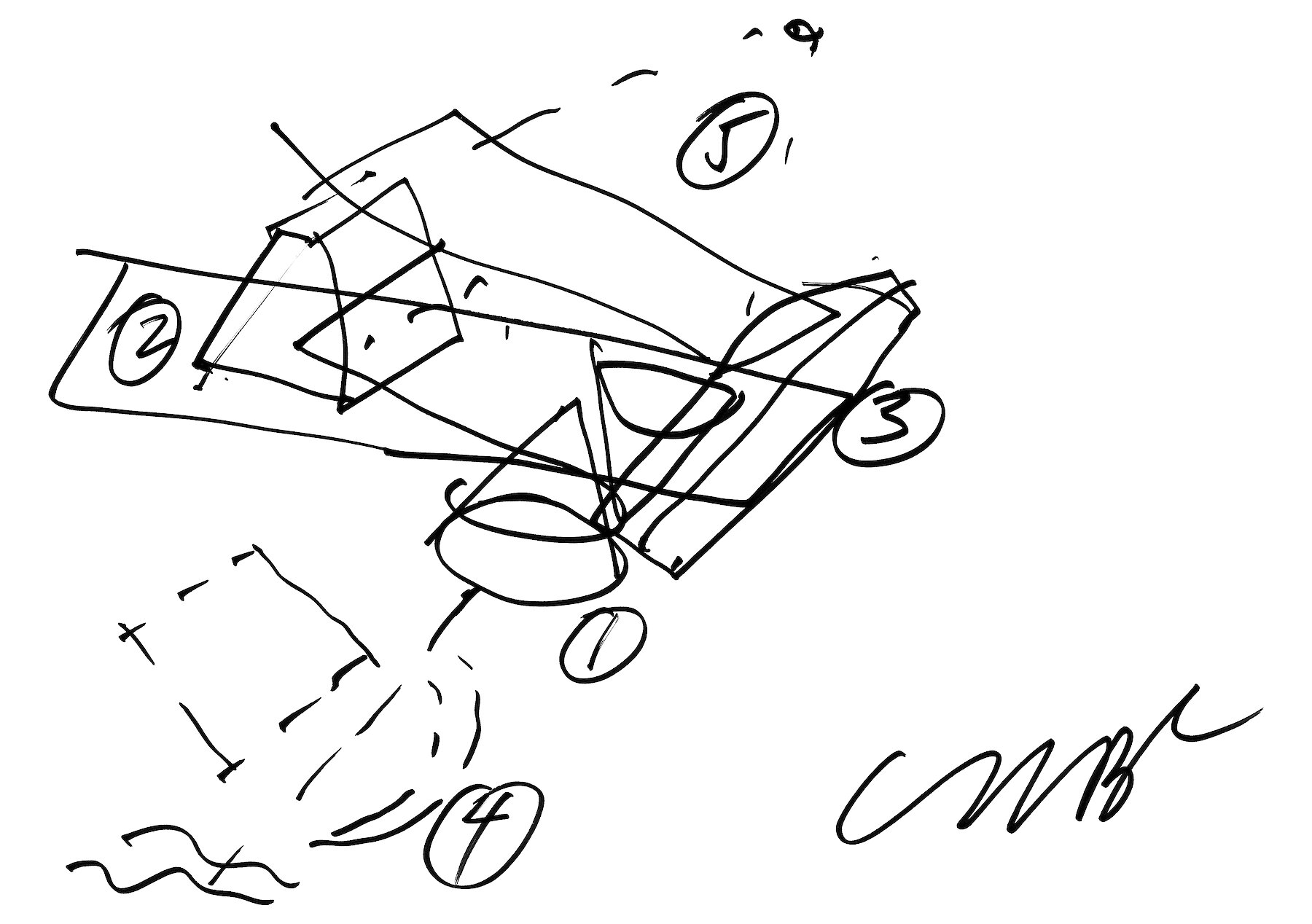
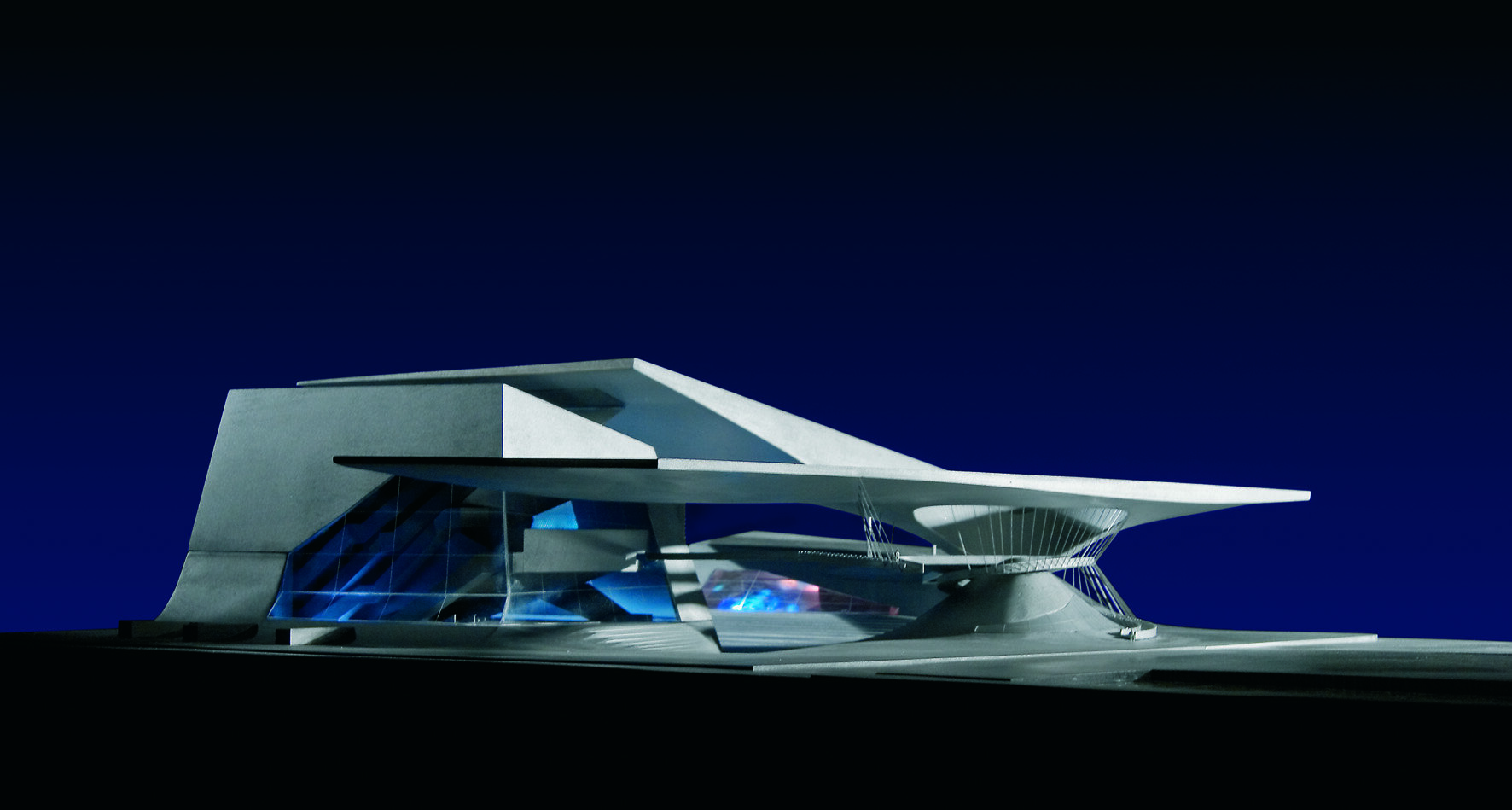
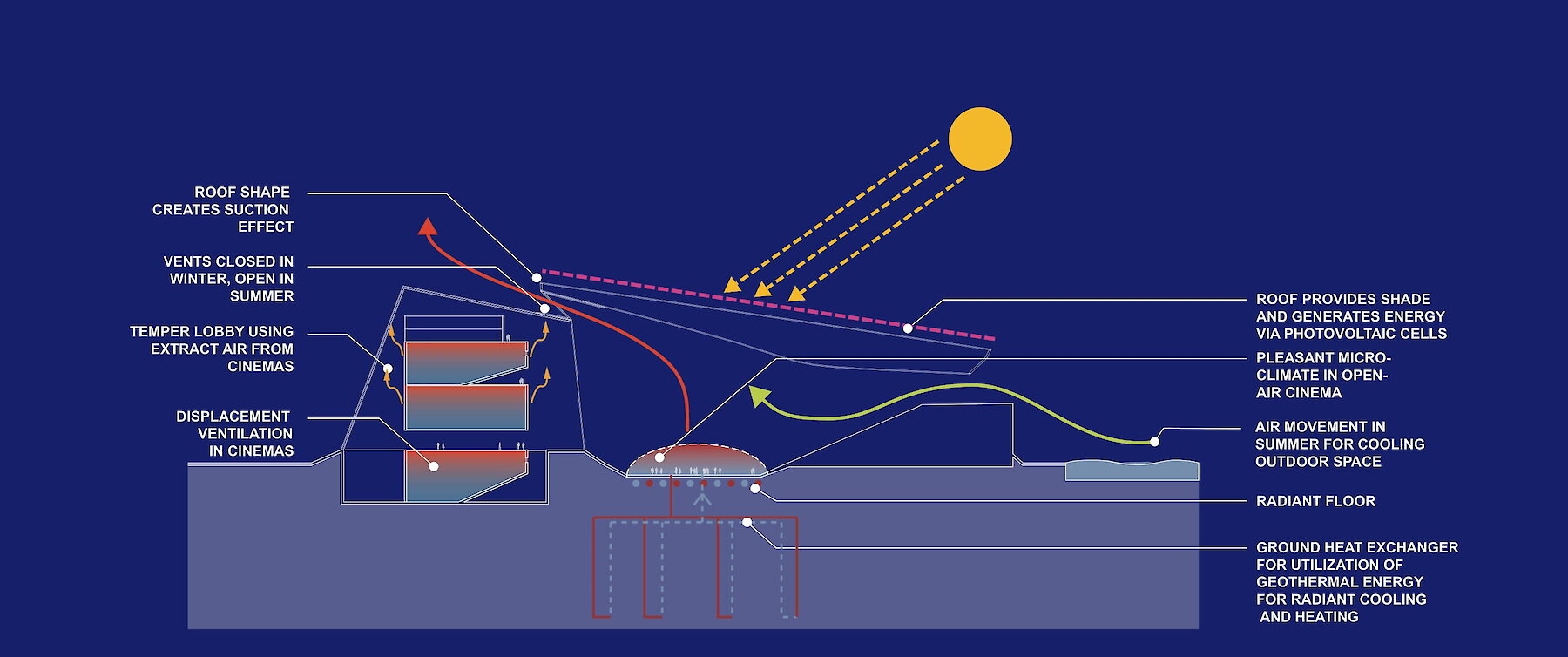
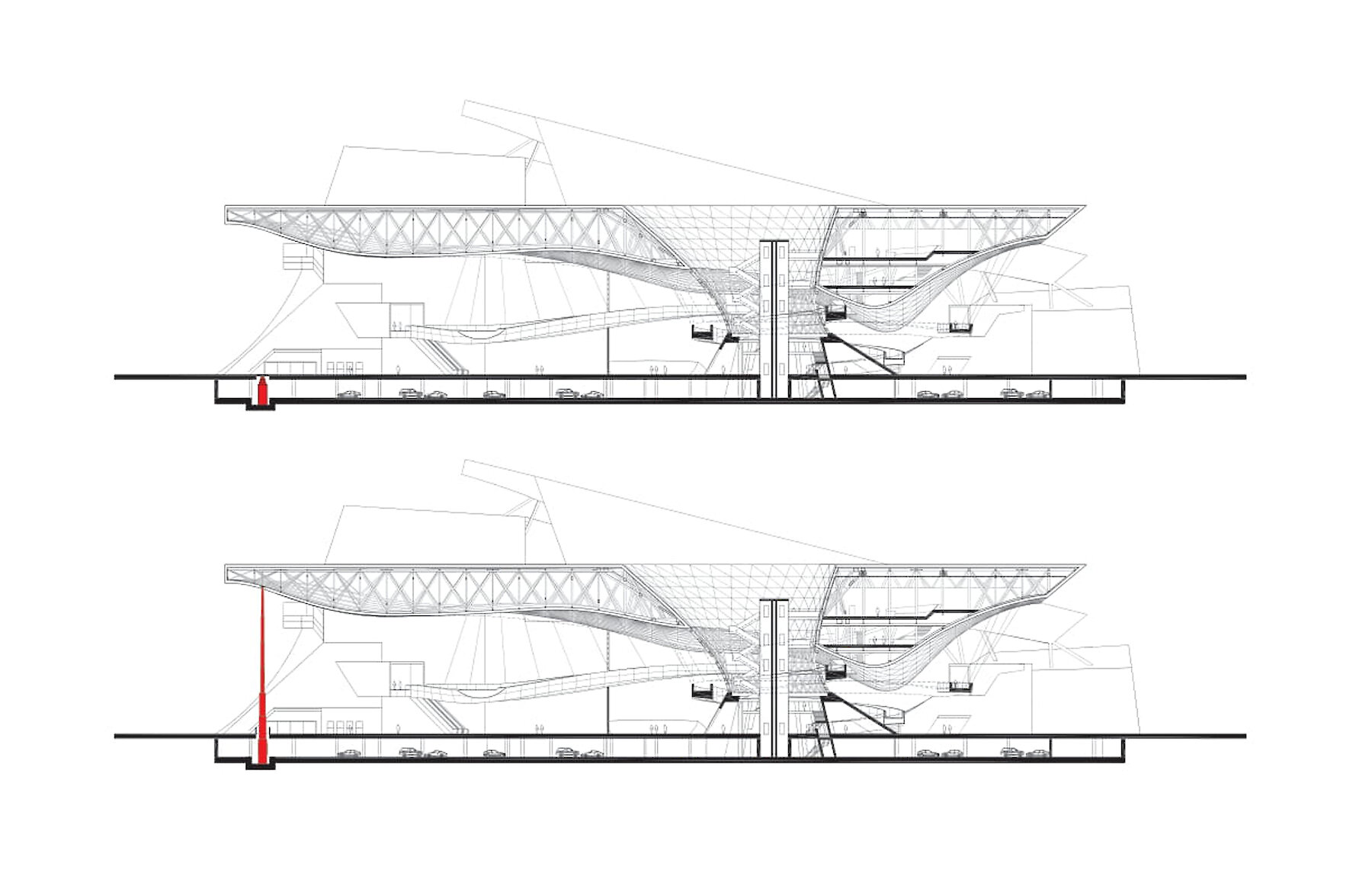
- Location
- Busan, South Korea
- Client
- Municipality of Busan
- Competition
- 2005, 1st prize
- Start of planning
- 2007
- Start of construction
- 2008
- Opening
- 2012
- Site area
- 32 100 m²
- Gross floor area
- 57 981 m²
- Footprint
- 10 005 m²
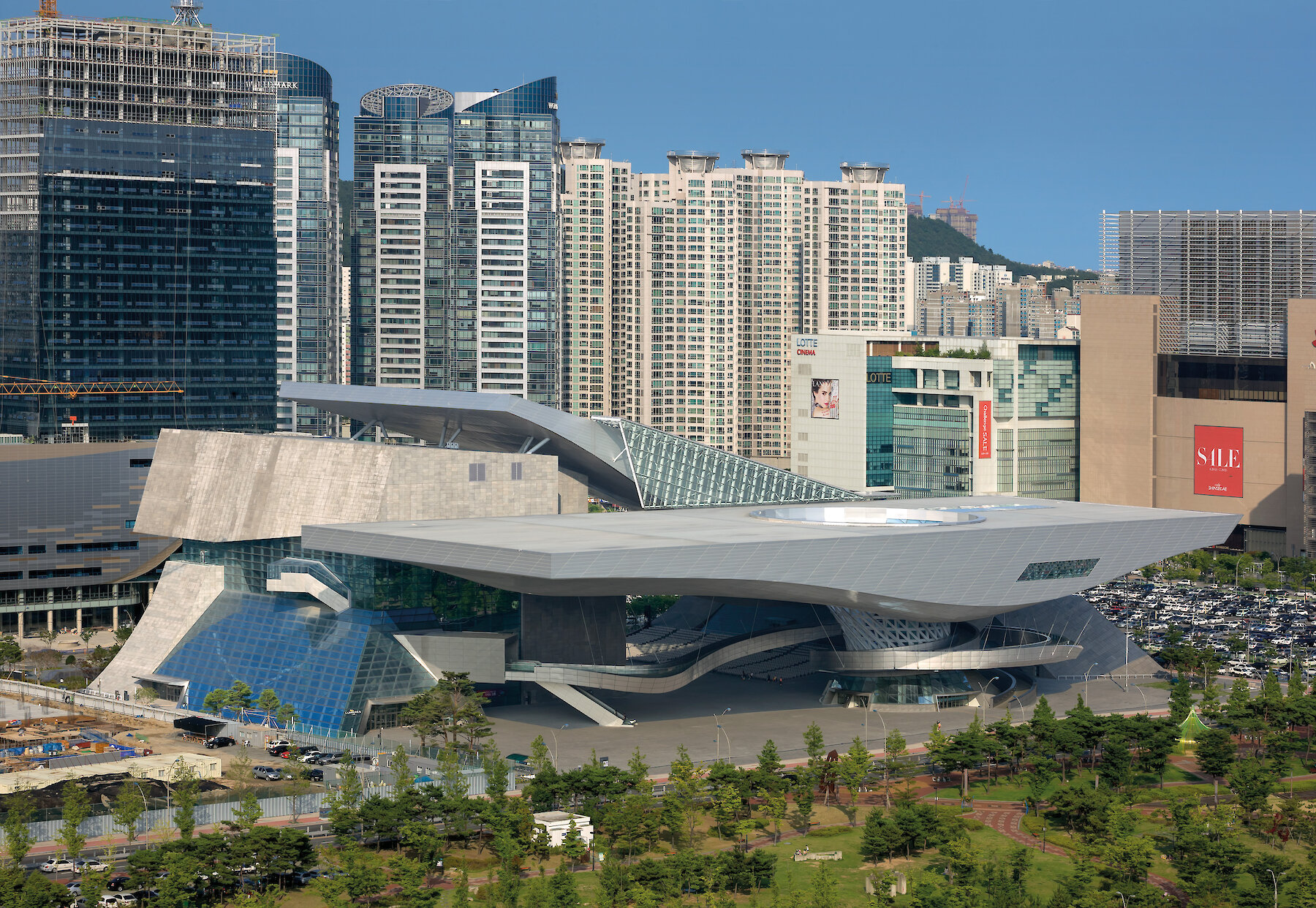
Duccio Malagamba
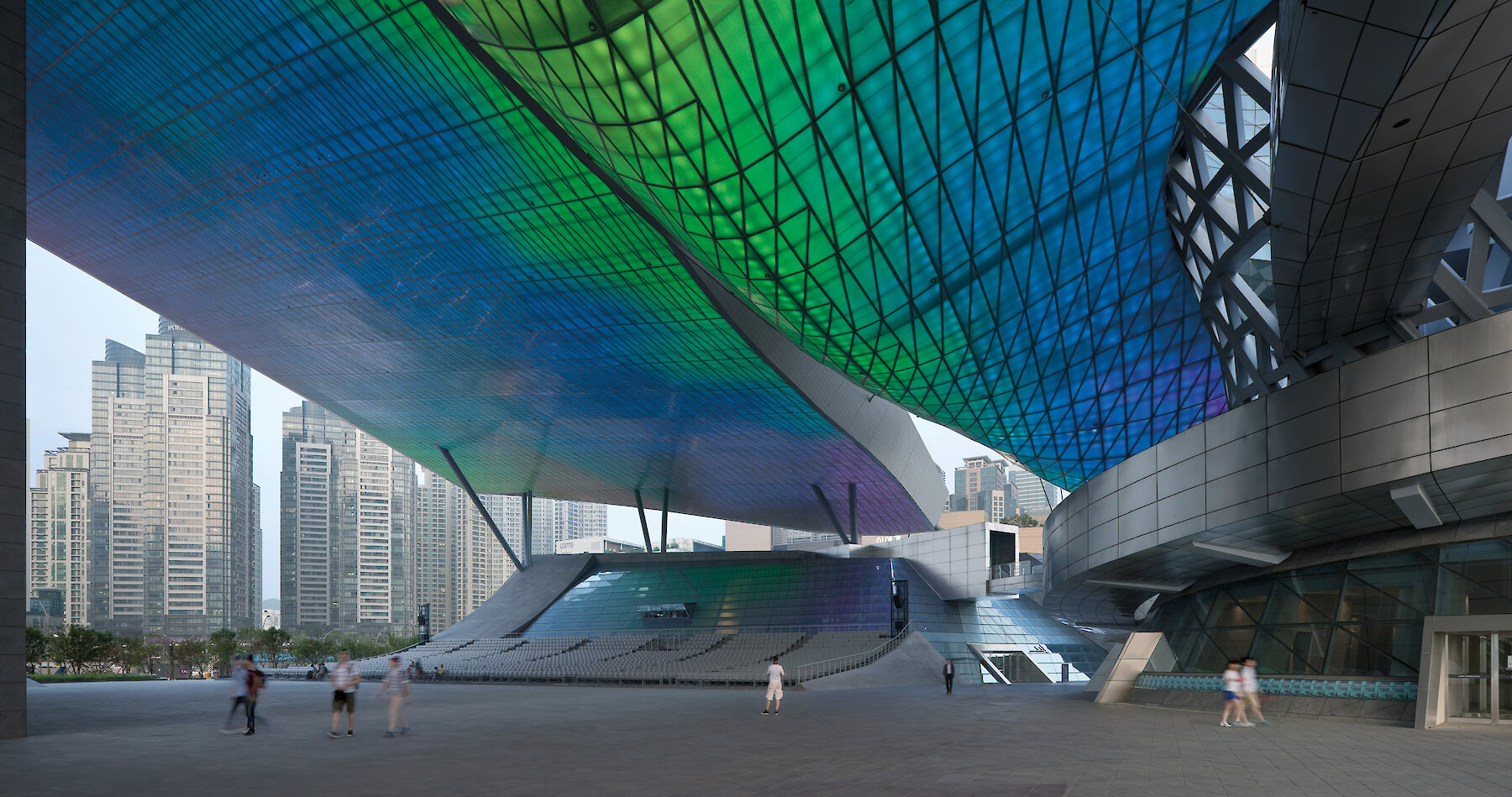
Duccio Malagamba
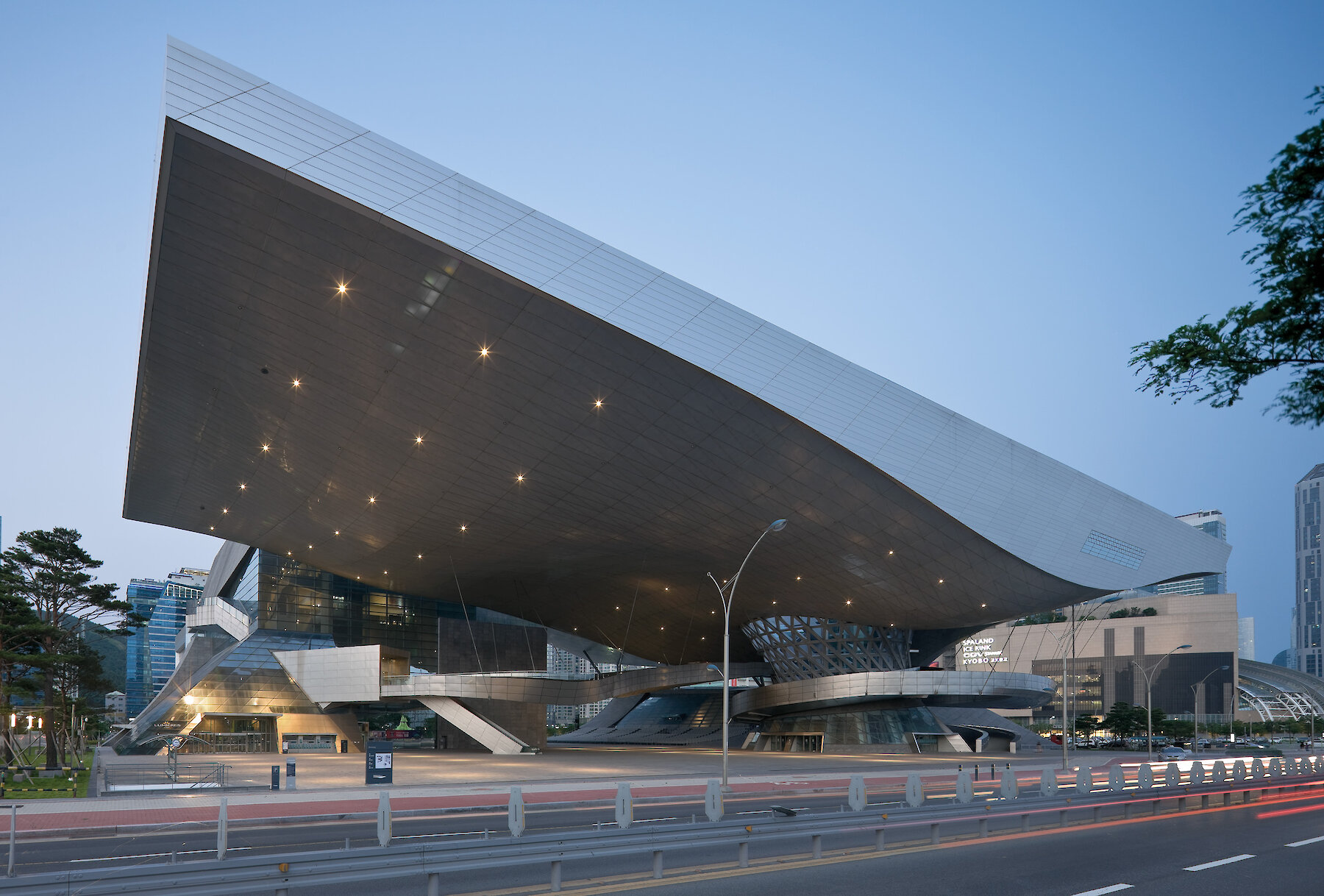
Duccio Malagamba
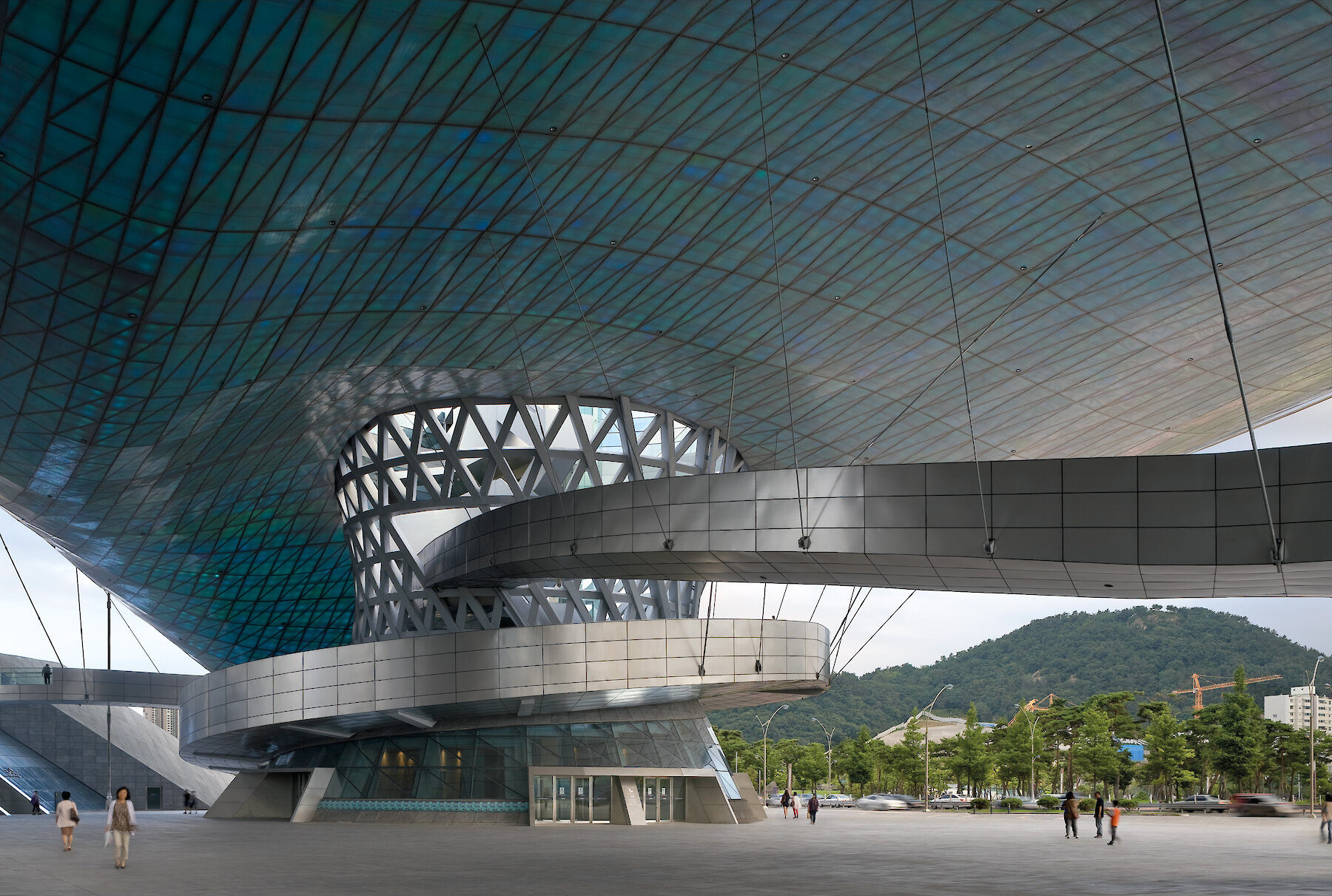
Duccio Malagamba
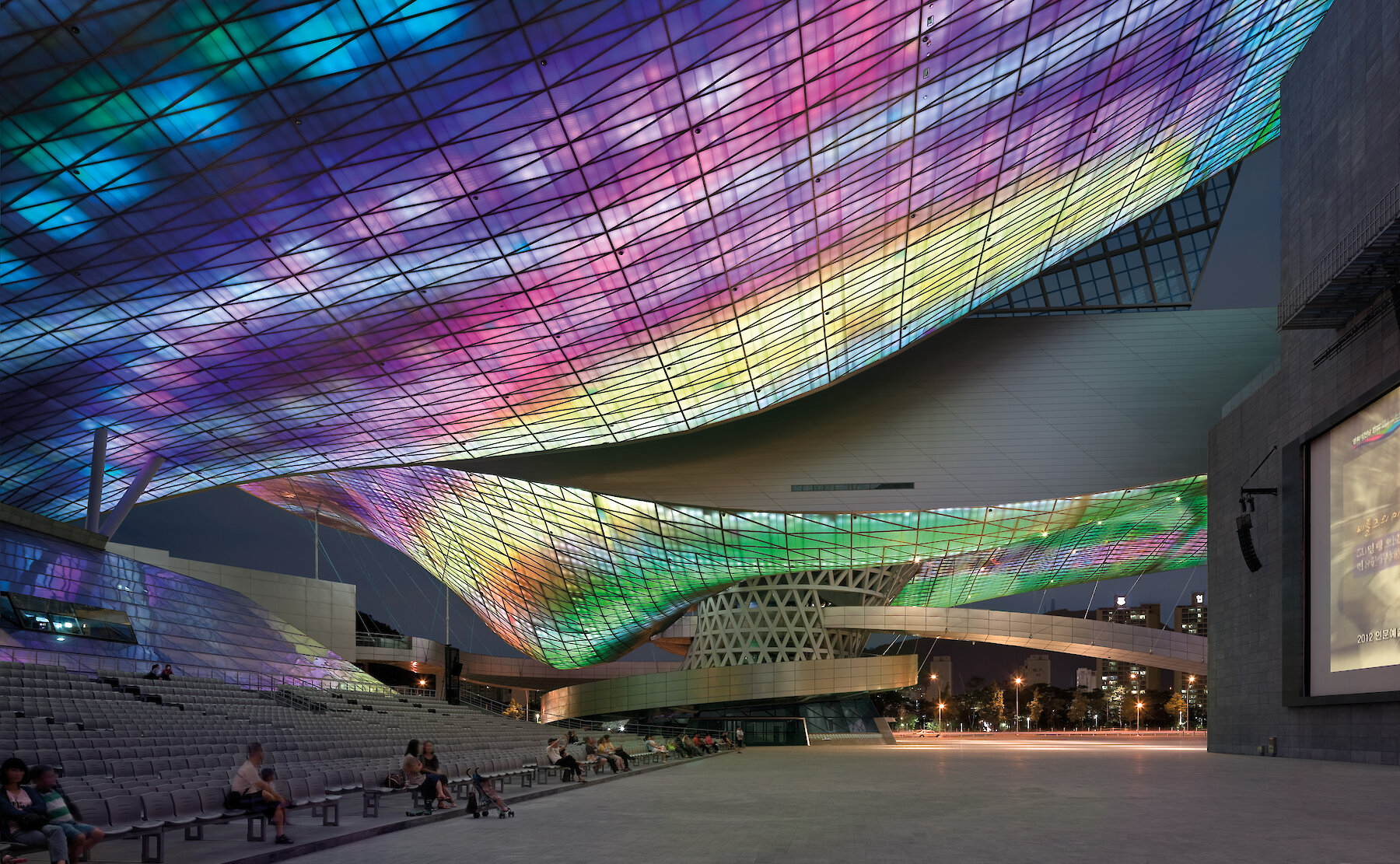
Duccio Malagamba
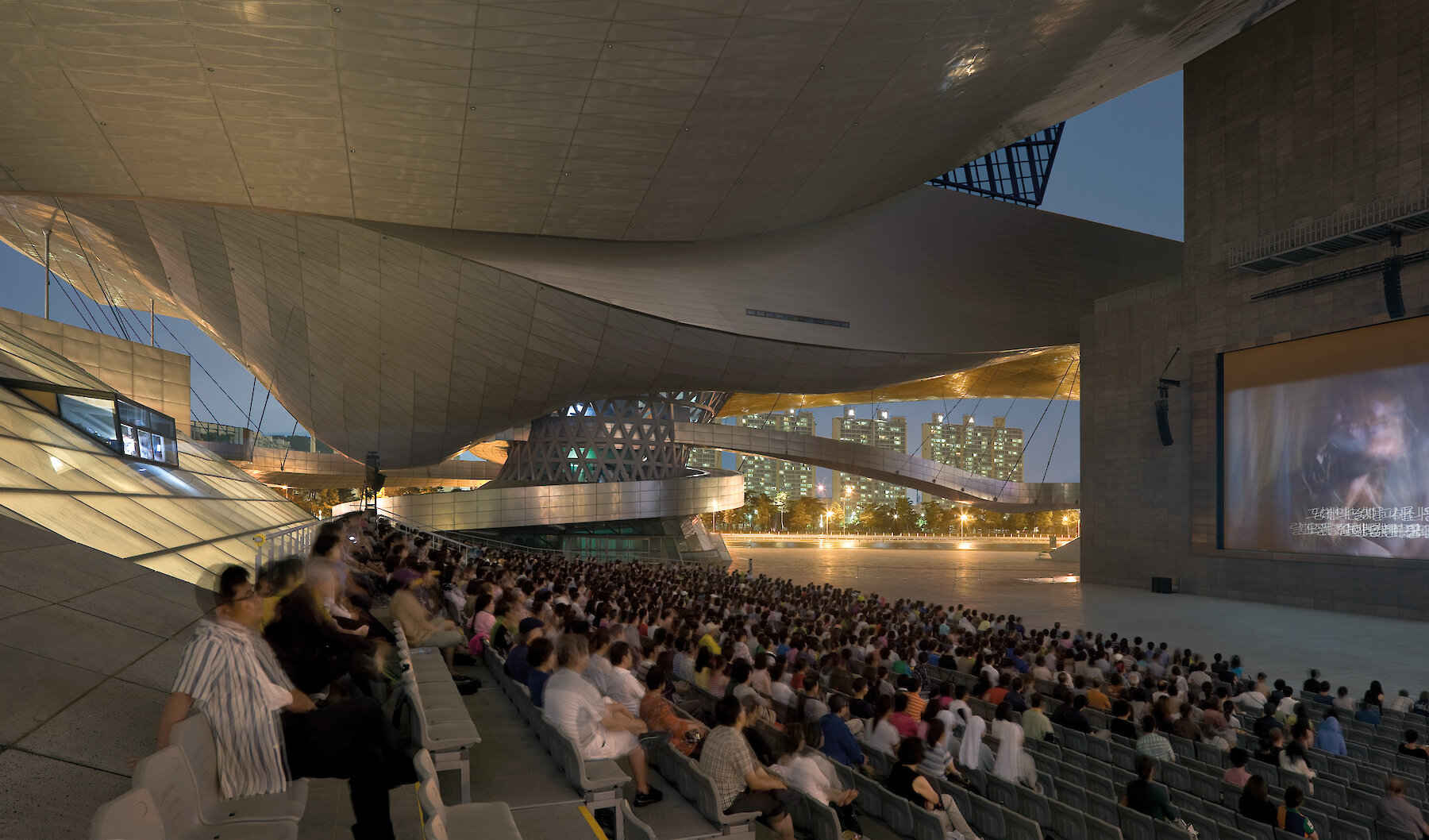
Duccio Malagamba
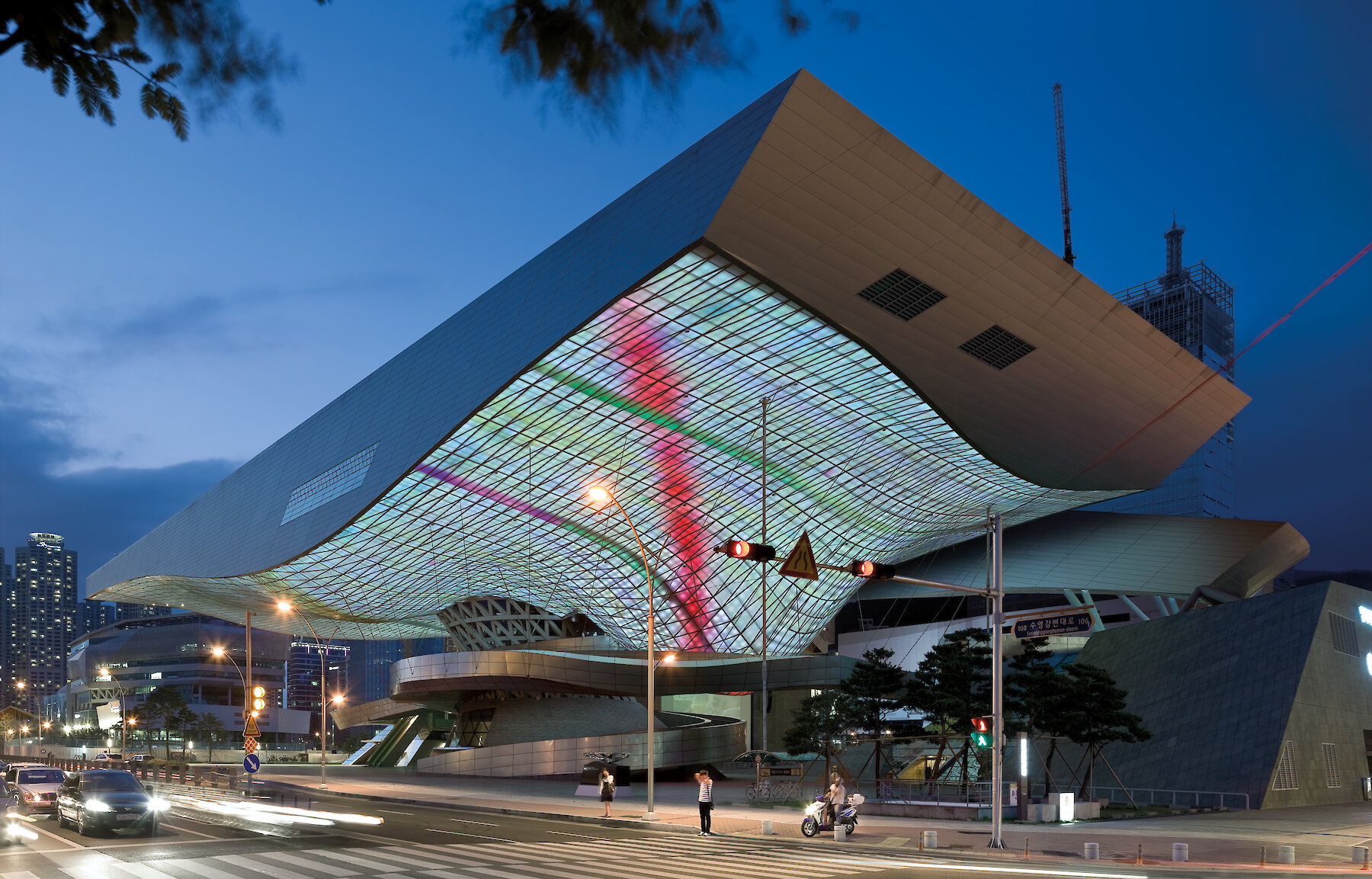
Duccio Malagamba
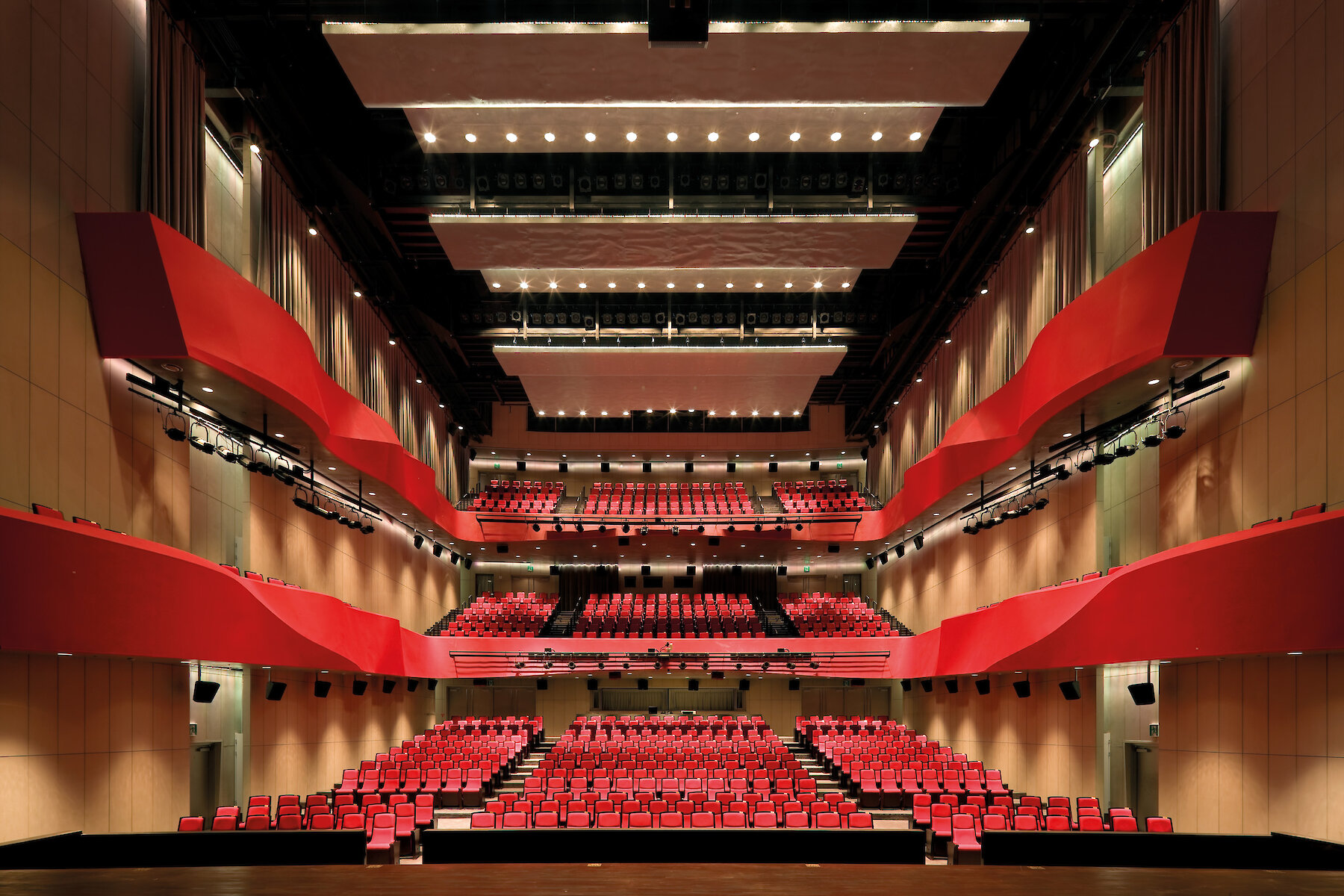
Duccio Malagamba
